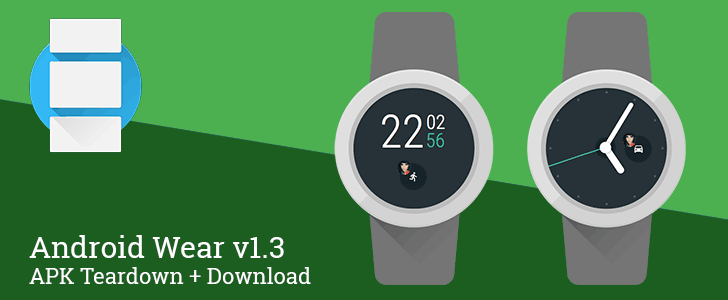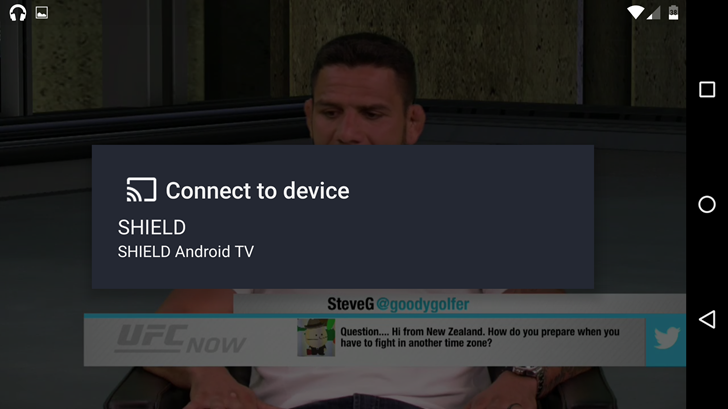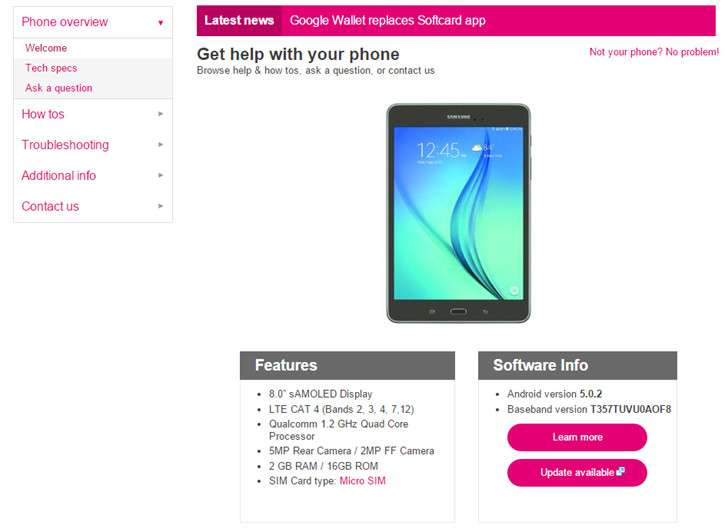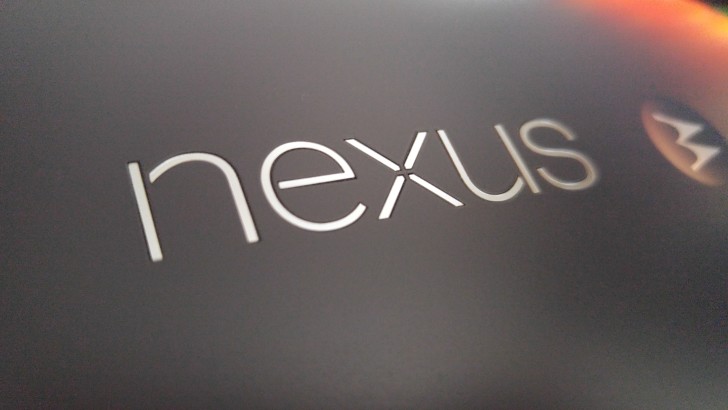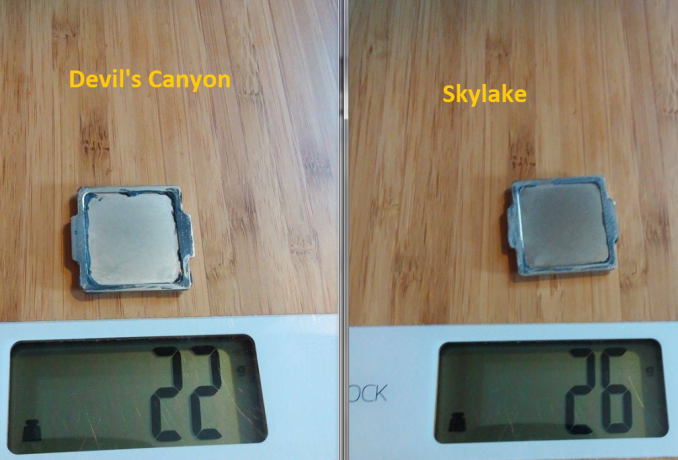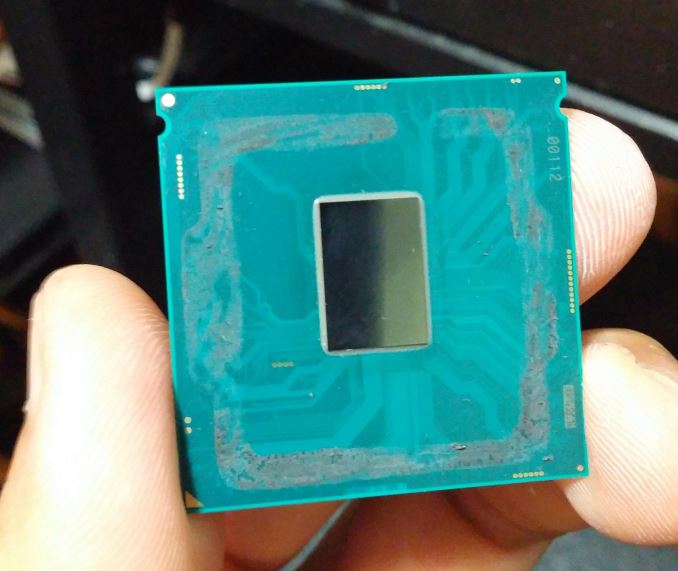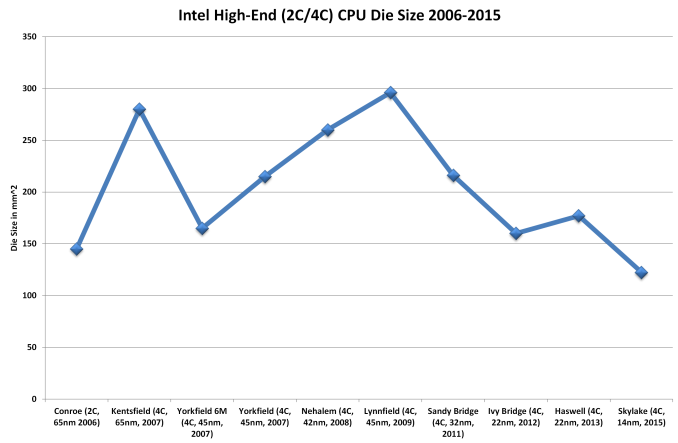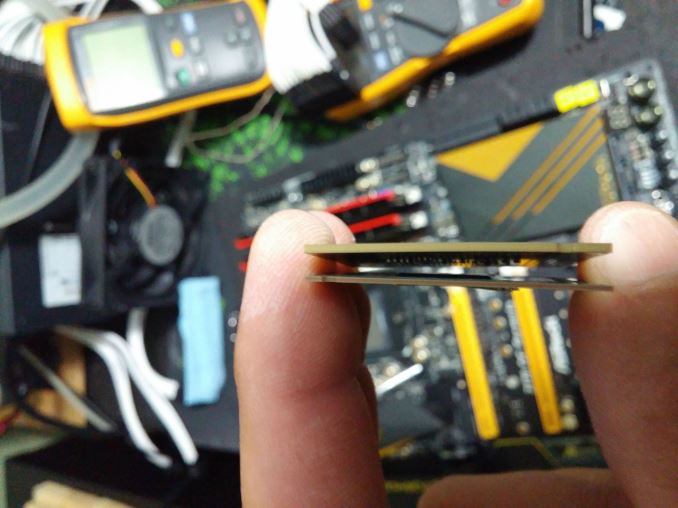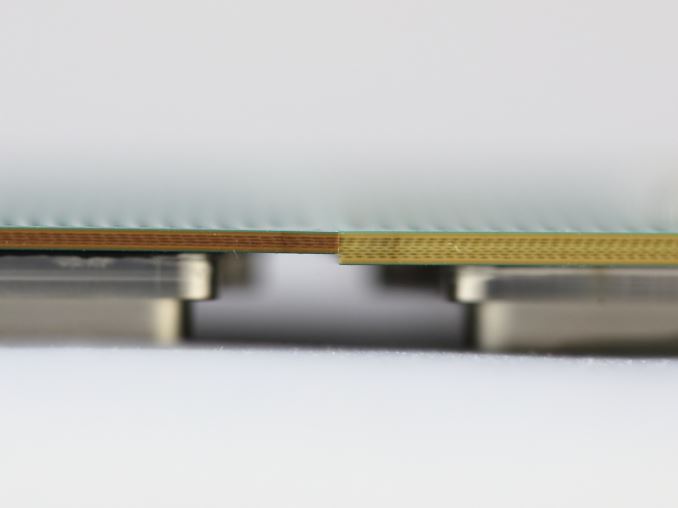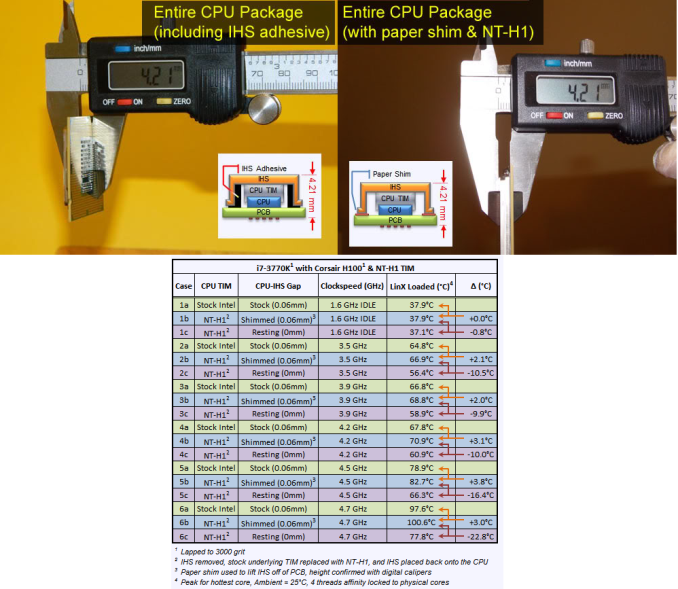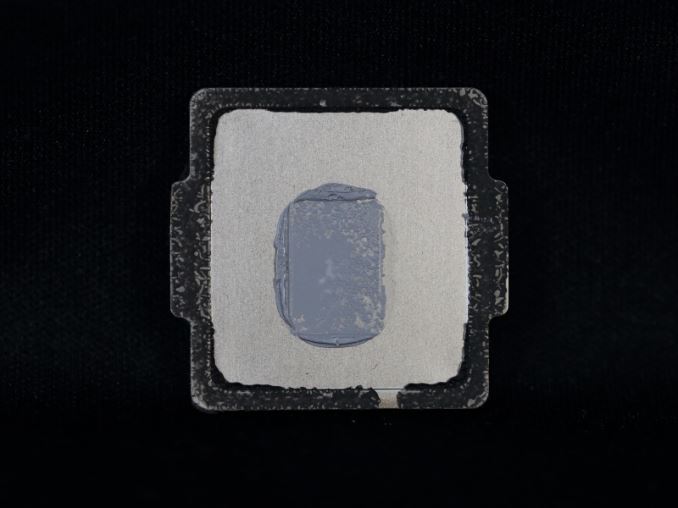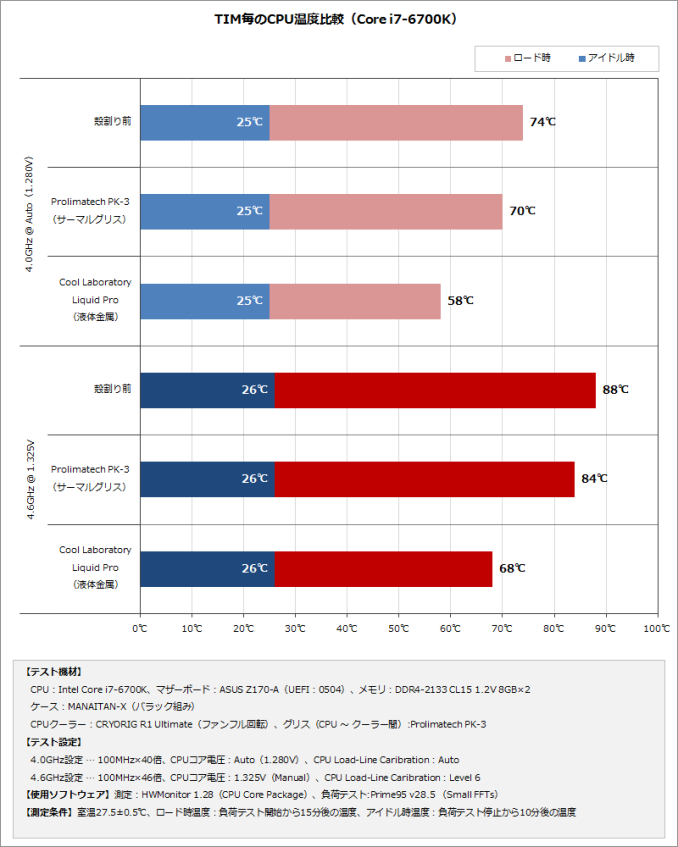Technology

It looks like being an all-in Project Fi customer has some benefits. It turns out Project Fi customers with damaged phones are offered a one-time replacement of their Nexus 6 for just $100, so long as they bought the phone from Google during the Project Fi setup process. All it takes is a quick call, chat or email with Project Fi support, and you'll have a new phone shortly.
This follows in the footsteps of rather vague and unadvertised policies from the Play Store and Google Store that (seemingly on-and-off) offer free or discounted replacements for Nexus devices, but this one is hardly vague — Project Fi offers any customer who bought a Nexus 6 through Fi a one-time $100 replacement within a year of purchase, with no questions asked.
Andrew Martonik
2015-08-12T11:00:36.000Z
In an age where hacked accounts and leaked messages are a common occurrence, encryption support is all the more important, not because you have anything to hide (well, unless you …
Continue reading
Ida Torres
2015-08-12T11:00:29.000Z
We’ve scoured the catalogs to bring you the very best of this year's offerings.
The post $100M Worth of Crazy-Swanky Cars Are About to Go on Sale appeared first on WIRED.
Alex Davies
2015-08-12T11:00:26.000Z
@OnLeaks has just shared a bunch of details about the anticipated Nexus smartphones from LG and Huawei.
Rob Triggs
2015-08-12T10:45:46.000Z

Because everyone hates straight lines.
Mat Smith
2015-08-12T10:40:00.000Z
Have an Android phone and looking for an easy way to synchronise your data to your Apple Mac? Here's our guide to making it as easy as the iPhone & iTunes.
Nirave Gondhia
2015-08-12T10:21:02.000Z

LG has launched a curved soundbar in its Music Flow series of connected audio equipment, dubbed the Music Flow HS8 Wireless Curved Sound Bar. Available in Europe starting next week, the HS8 houses a 4.1 channel speaker system with an output of 360W and is compatible with Google Cast.
Harish Jonnalagadda
2015-08-12T10:11:44.000Z
Monetizing the web isn’t something that most consumers think about, but really, it is a necessity for a lot of online businesses to stay afloat. Since display and pop up …
Continue reading
Ida Torres
2015-08-12T10:00:32.000Z
It's a digital world, but that song you’re streaming still sounds best if it was originally encoded in magnetic particles.
The post Sorry, But Digital Songs Sound Better When Recorded on Tape appeared first on WIRED.
Victor Krummenacher
2015-08-12T09:59:45.000Z
A new leak has revealed the battery we can expect Samsung to include in its upcoming Galaxy Note 5 and Galaxy S6 Edge Plus smartphones but is it big enough?
Nirave Gondhia
2015-08-12T09:49:06.000Z
Huawei has released a couple of teaser images for a new smartphone, which will be unveiled at IFA 2015 in Berlin on September 2nd.
Rob Triggs
2015-08-12T09:45:18.000Z

Twitter has just launched a new tool called "Full-Archive Search API," which gives brands access to every public tweet ever made from the microblogging site's inception nine years ago. If you recall, the company also opened up its archives to resea...
Mariella Moon
2015-08-12T09:28:00.000Z
Noodlecake Studios uploaded its own Shooting Stars game to torrent sites to send a message to pirates.
Rob Triggs
2015-08-12T09:00:19.000Z

Hillary Clinton has decided to surrender the private email server she used during her time as Secretary of State to the Department of Justice. A few hours after the Intelligence Community Inspector General told Congress that some of her corresponde...
Mariella Moon
2015-08-12T08:28:00.000Z

OneNote is currently being updated for Android, offering up a new feature for fans to take full advantage of. If you've been crying out for more convenient access to your notes, this update is for you as Microsoft has implemented a new floating icon called floatie.
Rich Edmonds
2015-08-12T07:50:27.000Z

Two months after Microsoft launched Skype's Business edition, which integrates into MS Office Calendar and allows for group messaging/video chats/calls for up to 250 people, the video conferencing company announced on Tuesday that a mobile version...
Andrew Tarantola
2015-08-12T07:10:00.000Z
Today we would like to introduce you to a new gallery app that managed to catch our eye. It's called Focus, and it's very simple, yet very advanced and full of neat features.
Edgar Cervantes
2015-08-12T06:47:35.000Z

Law enforcement agencies are making social media part of more and more investigations these days, based on Twitter's latest transparency report. Between January 1st and June 30th this year, the company saw a 52 percent increase in account informati...
Mariella Moon
2015-08-12T06:24:00.000Z

Merchant Customer Exchange is an alliance of several of the US' biggest retailers and restaurants, including Wal-Mart and Target, aimed at bringing mobile payments under their own control — and not by tying themselves to a particular tech com...
Mat Smith
2015-08-12T05:31:00.000Z
Want to buy a new phone? eBay has some awesome back to school deals you can take advantage of! All these phones cost under $300, so come in and take a look.
Edgar Cervantes
2015-08-12T05:23:21.000Z
Coming from En Masse Entertainment, Pocket Platoons is a turn-based strategy game with a World War II theme, which will be there second mobile game release onto Android. The game is set to focus on base building as well as troop positioning, with the final goal being to control the continent of Europe.
Players will choose either the Allied or Axis faction, build up a base, raise army, and lead it to war. Sounds a lot like the board game RISK in a lot of ways. The game is set to contain "over 300 campaign stages, hundreds of progression quests, dozens of tactical units, and a wide variety of combat modes to master", according to the developers.
Players will need to direct their troops to attack the enemy base, or defend their own base. You will also be promoting officers to tailor their skills to the needs at hand. Multiple players can team up to form coalitions in order to defeat opposing players and bigger enemy coalitions as well.
Pocket Platoons is set to be released for free on Android both on Google Play, as well as the Amazon Appstore, on August 27th. In the meantime you can check out the game in action through the trailer below.

Ed Burnette
2015-08-12T04:46:03.000Z
A new app called Edge Up Sports uses IBM's Watson cognitive computing skills to help you win your fantasy league.
The post IBM’s Watson AI Wants to Coach Your Fantasy Football Team appeared first on WIRED.
Tim Moynihan
2015-08-12T04:01:00.000Z

Here's the evolution of mobile news reading in a nutshell: First there were browsers; then RSS readers; and eventually we saw a slew of news reading apps like Flipboard, Feedly and Nuzzle that aimed to make it easier to discover and read news. Now...
Devindra Hardawar
2015-08-12T03:56:00.000Z
What is the Branto, and what can it do? This unique spherical gadget made of aluminum and polymer gives you full remote presence, smart appliance control and security features.
Edgar Cervantes
2015-08-12T03:40:43.000Z
Purm the Game from Diske Inc is an interesting little game. It is an endless worm flying game where you control Purm, the mighty worm who has managed to put a jetpack onto his back so he can fly around. You will need to avoid plenty of obstacles as well as not crashing in general, while trying to earn as many points as possible.
While this may be an infinitely flying game, there is a way to beat it. The problem is, the solution/directions to beating this game is encrypted within a riddle. Once you've managed to solve the riddle on how to beat the game, you will then actually have to beat the game using those directions. Why finish the game?

Well for one thing you can tell people you managed to finish an endless runner/flyer game and then you can sit back and watch them try to figure out what you're talking about. Probably with a sort of WTF type of look on their faces. The other reason is that if you're the first person to complete the game, the developers will apparently personally give you $1000, and that would be in real money, not play money. Needless to say, with $1000 on the line, finding the solution to beating this game won't be easy.
The soundtrack was done by OMFG for those of you curious. If you are up for the challenge, whether that be just trying to get the high score or trying to be the first to complete the game and score $1000 in cold hard cash, you can download Purm The Game off of Google Play for free. There are optional IAPs as well and using any of them also removes the ads (and gets you Ninja and Lazy worm) within the game as a side benefit.

Ed Burnette
2015-08-12T03:25:51.000Z

The proliferation of mobile phones is great, and so is the availability of 4G in the UK. However, dwindling spectrum available for wireless audio gear could cause problems at your local music venue or playhouse -- especially in the UK. Shure, the p...
Billy Steele
2015-08-12T02:36:00.000Z

Do you take your desk lighting seriously? Really seriously? You'll want to look at Aerelight's just-shipped A1 desk lamp, then. The eye-catching design uses an OLED panel to illuminate your room, which both makes it wafer-thin and produces a nat...
Jon Fingas
2015-08-12T02:09:00.000Z
With so many smartphone brands competing for our attention now, it’s easy to forget that once upon a time, there was this dominant force that ruled above all. Yes, Nokia …
Continue reading
Ida Torres
2015-08-12T02:00:55.000Z
A Samsung patent filing from Q3 2014 has recently been published, showcasing technology that would allow a device to display holograms.
Edgar Cervantes
2015-08-12T01:38:21.000Z

Apple Music has Beats1, and now Rdio has live radio, too. Rdio announced today that in addition to its library of 35 million songs and curated stations, it's tacking on live broadcast radio with access to "nearly 500 stations." We haven't seen a fu...
Billy Steele
2015-08-12T01:36:00.000Z
There were whispers and rumors about a sequel to the geek-tastic hit RPG “Doom & Destiny”, but we didn’t put much stock in them. Imagine how happy we were when …
Continue reading
John Hoff
2015-08-12T01:20:49.000Z

There's no question that Blizzard is a cornerstone of the eSports world. StarCraft is so big in South Korea that it's virtually an institution, and Heroes of the Storm was the first game to get a live ESPN2 broadcast. It only makes sense that the...
Jon Fingas
2015-08-12T01:05:00.000Z

Hey, game pirates: screw you. Seriously, you're part of the reason it's so hard to find a decent game that isn't packed with $100 in-app purchases. Of course, good old-fashioned greed on the part of game developers is a big part of that, but a demonstrable loss of revenue from relatively easy piracy (a problem on other platforms like Windows) is giving developers little incentive to release conventional premium games for a simple price.
Read MoreNoodlecake Trolls Game Pirates By Uploading An Impossible Version Of Shooting Stars To Popular Torrent Sites was written by the awesome team at Android Police.




Michael Crider
2015-08-12T01:02:00.000Z

Last week, Google released factory images for every actively-supported Nexus except the Nexus 7 2013 LTE and Nexus Player. These images were for a new build, LMY48I, intended to patch the recently outed vulnerability that was found in Stagefright.
Today, it appears the OTAs are beginning to hit the masses, but be warned, all these do is patch Stagefright. They contain no other fixes of any kind, so if there's some problem with your device you're hoping to have solved with this update, it's not going to happen.
Read More[Update: Nexus 7 2013 Wi-Fi] OTA Updates Incoming For Nexus Devices To Fix Vulnerability In Stagefright was written by the awesome team at Android Police.




Shawn De Cesari
2015-08-12T00:47:57.000Z
We are literally just a couple of days away from the official unveiling of the new Samsung smartphones/tablets, the Galaxy Note 5 and the Galaxy S6 edge Plus. But apparently, …
Continue reading
Ida Torres
2015-08-12T00:40:43.000Z
Jerry Hildenbrand
2015-08-12T00:36:35.000Z
OneNote's new feature is called Floatie, and despite its cute name it will likely be among the most powerful attributes the note-taking app has.
Edgar Cervantes
2015-08-12T00:35:53.000Z
Michael Crider
2015-08-12T00:23:37.000Z

Always looking for a reason to dust off your office's sad, unused fax machine? Here's one: The band YACHT used faxes to initially distribute its new album's artwork. No, really. It's part of a weird, multimedia promotion that defies all expectation...
Sean Buckley
2015-08-12T00:23:00.000Z
If you were a 90s kid who loved playing puzzle games, then you probably came across the Logical Journey of the Zoombinis. And now that mobile gaming is one of, …
Continue reading
Ida Torres
2015-08-12T00:00:51.000Z

Right now, the easiest way to read breaking news on your smartphone is to download a dedicated news reader app, something like Paper or Flipboard -- but rumor has it that Facebook is working on something different. According to Business Insider, Fa...
Sean Buckley
2015-08-11T23:57:00.000Z

Out of all the watch faces that you can currently find in the Google Play Store for your Android Wear device, weather apps are some of the most helpful at a glance. There are plenty of them out there right now, and one to take a look at is Weather Time for Wear.
It's free with in-app purchase options that unlock the good stuff, but mostly gets the job done well. Lets take a look.

Weather Time for Android Wear definitely has the design aspect of things down. The default screen is a blue sky with fluffy white clouds — even when that is not at all what it looks like outside — and all your information overlaid onto it. At the top of the screen you'll see the time, underneath that there is the date, and at the bottom of the screen you'll see the temperature along with an icon for weather conditions.
The free version of Weather Time for Wear gives you access to some options, but to get the full experience you'll need to drop $2.00. All of your options are available on your phone and they are all divided up into one of several categories; Weather Settings, Look and Feel, Notification Settings, Touch Event Settings, and General Settings.

Jen Karner
2015-08-11T23:45:14.000Z

Expansys is currently offering a pretty good deal on the 16GB WiFi variant of the Nexus 9, discounting it to $290.
Dan Thorp-Lancaster
2015-08-11T23:27:30.000Z

Makerbase, a new site from Lifehacker founder Gina Trapani and former blogger Anil Dash that's being billed as the IMDb of web design, has just launched. Just as IMDb maintains archives of the people that help produce television shows and movies, M...
Andrew Tarantola
2015-08-11T23:24:00.000Z
Initially judging on the preview images, we can say 'The Sequence' is no ordinary puzzle. It's one unique challenge that will require you to find solutions using different modules. All …
Continue reading
R Padla
2015-08-11T23:20:14.000Z
The BDUK superfast broadband roll-out has hit three million premises around the UK
ComputerWeekly.com
2015-08-11T23:01:52.000Z

Netflix has acquired yet another movie: Mascots. Behind the full-length project, scheduled to be released in 2016, is Christopher Guest, best known for his acting and directing in comedies like A Mighty Wind, Best In Show and For Your Consideratio...
Edgar Alvarez
2015-08-11T22:43:00.000Z
Bitcoin has been controversial the past months but we don't want to be stressed about that. Instead, we just want to continue and have fun with the Bitcoin Billionaire game …
Continue reading
R Padla
2015-08-11T22:40:13.000Z

If you've been wanting to play around with LastPass on your mobile device without paying the $12 annual fee for premium support, today is your day: the password manager just added mobile to its free tier. What's the catch? You only get it on mobile...
Sean Buckley
2015-08-11T22:27:00.000Z
It’s been almost three years since I put my iPhone 4s in a drawer and switched over to an Android device as my full-time smartphone. Since I made that switch, I’ve used a Samsung Galaxy SIII, a Samsung Galaxy Note 2 and my current phone, an LG G3. I’ve also used Android tablets like the Nexus […]
Julie Strietelmeier
2015-08-11T22:14:25.000Z

There is no single definition of an "indie" video game. "Indie" doesn't mean free, cheap, mobile, 8-bit, 3D, platformer, shooter or any other thing. Thanks to the recent, rapid evolution of game-making technologies, more people than ever are able t...
Jessica Conditt
2015-08-11T22:01:00.000Z
Fresh from the success of the ZenFestival in New Delhi, ASUS is unveiling yet another smartphone in the form of the ZenFone Go. The entry-level phone was actually expected to be announced …
Continue reading
R Padla
2015-08-11T22:00:56.000Z
Lisa Schmeiser
Today in the news: Mozilla finally makes nice with Microsoft and releases a Windows 10-friendly version of Firefox; we've got a raft of how-tos; Microsoft rolls out context-sensing APIs for app developers; we've got a preview of Skype for Business apps for iOS and Android.
read more
2015-08-11T21:39:00.000Z

The phrase I saw and heard over and over again while talking to other journalists and security researchers about the Def Con hacker convention was "hostile environment." Not physically hostile; the attendees and staff were extremely nice. The hosti...
Roberto Baldwin
2015-08-11T21:34:00.000Z
For all of you who have used Windows at the beginning of your digital lives, nothing evokes more fear and trembling than the dreaded Blue Screen of Death. Countless horror …
Continue reading
Ida Torres
2015-08-11T21:20:44.000Z

Sure, we've seen machines that can mix drinks with the help of an app and robot bartenders that can create cocktails out of Keurig-esque pods, but they all require you to actually push the control buttons and carry your own beverages. The horror! F...
Amber Bouman
2015-08-11T21:08:00.000Z

Android phones have come a long way in the accessibility department, and the Moto G 2015 is no exception. Using the features and tools Google has provided for Android Lollipop, the Moto G 2015 has plenty of options for those with trouble seeing or hearing, and even those of us with motion control issues.
Being there is fine, but knowing how to use them is the important part. that's where we can help. Have a gander at the Moto G 2015 accessibility options.
Jerry Hildenbrand
2015-08-11T21:01:23.000Z

Some homes are smart, and the Logitech Harmony serves as their brain. It provides a single location to control all the things, assuming of course that the products are supported. The latest update adds quite a few more to the list ranging from door locks to thermostats and a few things in between. Logitech Updates Harmony App With Support For The August Smart Lock, Ecobee Thermostat, LIFX Light Bulbs, And Insteon
The new additions include the August Smart Lock (pictured above) that provides remote control over your doors.
Read MoreLogitech Updates Harmony App With Support For The August Smart Lock, Ecobee Thermostat, LIFX Light Bulbs, And Insteon was written by the awesome team at Android Police.




Bertel King, Jr.
2015-08-11T21:00:30.000Z

At Flash Memory Summit today SanDisk announced the second generation of their CloudSpeed Ultra enterprise drive. This is the sibling to the gen. 2 CloudSpeed Eco that was announced in June.
As with the Eco gen. 2, the Ultra gen. 2 transitions from 19nm to 15nm MLC and brings a reduced endurance rating but increased performance. The Ultra model continues to be geared for mixed read/write workloads while the Eco is for more read-intensive uses.
| SanDisk Enterprise SATA SSDs |
| Drive |
Ultra gen. 2 |
Eco gen. 2 |
Ultra gen. 1 |
| Capacities |
400GB, 800GB, 1600GB |
480GB, 960GB, 1920GB |
100GB, 200GB, 400GB, 800GB |
| NAND |
SanDisk 15nm MLC |
SanDisk 15nm MLC |
SanDisk 19nm MLC |
| Sequential Read |
530 MB/s |
530 MB/s |
450 MB/s |
| Sequential Write |
460 MB/s |
460 MB/s |
400 MB/s |
| 4kB Random Read IOPS |
76k |
76k |
75k |
| 4kB Random Write IOPS |
32k |
14k |
30k |
| Endurance Rating |
1.8 DWPD |
0.6 DWPD |
3 DWPD |
SanDisk is already supplying the CloudSpeed Ultra gen. 2 to several major customers for large-scale deployments and it will be more broadly available later in 2015, where it will be competing against drives like Samsung's SM863 and Intel's DC S3610. Pricing will be under $1/GB, but we don't know by how much. It probably won't be undercut by Intel's DC S3610, but to be competitive it will need to be down near Samsung's $0.66/GB for the SM863.


Billy Tallis
2015-08-11T21:00:00.000Z

The latest updates to Microsoft's OneNote app have taken advantage of an ability granted to it by the openness of Android OS: the ability to place an overlay on top of other running apps. Similar to Facebook Messenger's chat heads UI, OneNote now has an opt-in feature called "floatie" that remains accessible while you use non-OneNote apps. The idea is that inspiration for notes may come at any time and you may not want to leave the app you're in to do it.
Read MoreMicrosoft OneNote Adds 'Floatie' Feature, An Unobtrusive Shortcut For Jotting Down Notes While Using Any App was written by the awesome team at Android Police.




Jacob Long
2015-08-11T20:50:05.000Z

If you're already annoyed with the autoplay video ads in your Facebook timeline, you might want to brace yourself. The social network is opening up that advertising tech to outside apps, or more specifically, to publishers who leverage Menlo Park's...
Billy Steele
2015-08-11T20:44:00.000Z
The clock has been ticking now for almost 6 months ever since Huawei announced its first Android Wear smartwatch back in March during the Mobile World Congress. But since then, …
Continue reading
Ida Torres
2015-08-11T20:40:41.000Z

It doesn't take long for social media to become antisocial. A tactless tweet, an inappropriate picture or even a mundane status update can create the perfect storm for online shaming. In an attempt to convert those rabid online tendencies into oppo...
Mona Lalwani
2015-08-11T20:20:00.000Z

Last year, we had a lot of fun at Engadget Live Los Angeles and now we're gearing up to do it all over again. Next Friday, August 21st, we'll take over Exchange LA from 7PM to 10PM and give readers like you a chance to experience the future of tech...
John Colucci
2015-08-11T20:05:00.000Z
Panasonic smartphone lines may not be popular as the Samsung Galaxy phones, LG G's, ASUS ZenFone's or HTC One's but the Eluga phone series has been around since 2012. It …
Continue reading
R Padla
2015-08-11T20:00:06.000Z

Keeping to their normal rapid release schedule, Mozilla published v40 of the stable release of Firefox to the Play Store today. The biggest user-facing change in the update is one that was also present in the beta version of v40, allowing you to long press the forward or back buttons to see a list of your recently visited pages. Here's a quick look at how that works:

This is the sort of thing that only catches your attention when there aren't any other major changes, but this is one of those times.
Read MoreFirefox Stable Release Is Updated To v40 With Tweaked Forward/Back Navigation, Better Malware Protection, And Other Minor Improvements was written by the awesome team at Android Police.




Jacob Long
2015-08-11T19:50:22.000Z

Our Russell Holly will be joining the TWiT team on tonight's All About Android show, and you can tune in and watch it live. Starting at 5 p.m. PDT, or 8 p.m for those on the East Coast, you can check out all of the conversation as it happens.
Jared DiPane
2015-08-11T19:48:56.000Z

The Steam Machine invasion is happening this fall. But while these computers are said to be more powerful than traditional consoles, such as the Xbox One or PlayStation 4, none of them are exactly portable. Smach Zero's device, however, is. Formerl...
Edgar Alvarez
2015-08-11T19:48:00.000Z
 The idea of paying using your phone may be exciting, but that's all it will ever be until more stores start playing along. Today Rite Aid announced that you will soon be able to add its nearly 4600 stores to the list. Starting August 15th, it will accept Google Wallet NFC payments in stores. It will also take tap and pay credit cards.
The idea of paying using your phone may be exciting, but that's all it will ever be until more stores start playing along. Today Rite Aid announced that you will soon be able to add its nearly 4600 stores to the list. Starting August 15th, it will accept Google Wallet NFC payments in stores. It will also take tap and pay credit cards.
That's right, it'll be like you're shopping at Walgreens.
Read MoreRite Aid Will Officially Accept Google Wallet, And Eventually Android Pay, Starting August 15th was written by the awesome team at Android Police.




Bertel King, Jr.
2015-08-11T19:41:59.000Z
Molly McHugh
2015-08-11T19:33:17.000Z

Verizon has announced that it has successfully completed field tests of its new super-fast fiber optic technology, dubbed the next-generation passive optical network (NG-PON2). It could offer users connectivity speeds anywhere from 10Gbps to 80Gbps...
Andrew Tarantola
2015-08-11T19:24:00.000Z
Back in 2008, when Google first started indexing PDF files through OCR from websites to include it in your search results, it was a sigh of relief (and for some, …
Continue reading
Ida Torres
2015-08-11T19:20:05.000Z
 Most developers run regular beta tests via the Play Store, but not eBay. Oh no. The most recent eBay v4.0 beta is closed, and even the APK needs an authorized login to work. Luckily, there's a form you can fill out to get access.
Most developers run regular beta tests via the Play Store, but not eBay. Oh no. The most recent eBay v4.0 beta is closed, and even the APK needs an authorized login to work. Luckily, there's a form you can fill out to get access.
It's a simple Google Docs survey and should only take a moment to complete. Just put in your email, beta preference (iOS/Android), and your country. You should get an email with the download link as soon as there's a new build to test.
Read MoreGet Access To The eBay App v4.0 Closed Beta By Filling Out This Form was written by the awesome team at Android Police.




Ryan Whitwam
2015-08-11T19:19:00.000Z

Microsoft has announced the preview for its upcoming Skype for Business offering on Android. Skype for Business will come as an update to the existing Lync 2013 app when it arrives later this year.
Joseph Keller
2015-08-11T19:03:39.000Z

Developers in Qatar, Kazakhstan and Nigeria are now able to list paid apps in Google Play, and display the apps using local currency pricing. The changes, which are reflected on the Google Play Developer Console, indicate that developers in these regions are now able to set pricing for their apps, as well as in-app purchases using local currency.
Jared DiPane
2015-08-11T19:03:25.000Z

You're probably tired of hearing just how "unconventional" Google is after yesterday's surprise restructuring announcement. Sure, making Google a subsidiary of a company called Alphabet is certainly strange, especially after it's become a household...
Devindra Hardawar
2015-08-11T19:00:00.000Z

The free version of Skype is great for personal use, but you can also get work done with it as well. I took part in numerous job interviews over video chat during my last year of college. When I landed an internship, we used it to communicate around the office.
But for big work done by big companies, there's Skype for Business. It comes with extra perks such as the ability to chat with up to 250 people and integrate everything with Office.
Read MoreAndroid's Version Of Skype For Business Is On The Way, And You Can Sign Up Now To Test The Preview was written by the awesome team at Android Police.




Bertel King, Jr.
2015-08-11T18:55:55.000Z
If you’ve been around mobile technology then you will know that the Omate smart ring isn’t the first of its kind around. There have been “smart rings” for just about …
Continue reading
John Hoff
2015-08-11T18:40:38.000Z

You don't hear a lot about Google Creative Lab, but it's had a hand in some of Google's most memorable ads and products. Google's Creative Lab is an outfit that basically comes up with (presumably) innovative ideas the promote the Google brand. Along the way, they've also made a few apps. Today there are three new apps from the Creative Lab, all of which are appropriately offbeat.
First up, there's Landmarker, which I dare say is the most conventional and useful of the three.
Read MoreGoogle Creative Lab Releases Three New Experimental Apps—Landmarker, Tunnel Vision, And Lip Swap was written by the awesome team at Android Police.




Ryan Whitwam
2015-08-11T18:13:23.000Z
After the Galaxy Note 5 and Galaxy S6 Edge Plus are announced this week, the next major flagship phone we should be waiting for is the Galaxy S7. Samsung is …
Continue reading
R Padla
2015-08-11T18:00:57.000Z
Has Mozilla had a change of heart about Windows 10 after the default browser dust up a couple of weeks ago?
read more
2015-08-11T17:50:00.000Z
Mark Killian
2015-08-11T17:41:03.000Z
August started with us getting a glimpse of the Galaxy S5 Neo being listed on a Dutch online retailer, ready for pre-order. We knew it was only a matter of …
Continue reading
R Padla
2015-08-11T17:20:55.000Z
When you are concerned with mosquito-borne illnesses like the West Nile virus present here in Texas, finding effective ways to repel mosquitoes in addition to the standard repellent sprays (containing DEET) is of great importance. The Thermacell Mosquito Repellent appliance is an outdoor device used to repel mosquitos within a 15′ x 15′ area. I found […]
Kathleen Chapman
2015-08-11T17:00:25.000Z

Lenovo already has cell phone legend Motorola under its umbrella, but the company has also started a new Chinese brand called ZUK. This firm is intended to compete with the budget offerings of Xaiomi, Huawei, and others. Its first phone looks like a good start too. The Z1 has a massive battery and a USB 3.0 Type-C port.
The Z1 is basically specced like a 2014 flagship with a few important extras.
Read MoreLenovo-Backed ZUK Announces The China-Only Z1 With USB 3.0 Type-C And 4100mAh Battery was written by the awesome team at Android Police.




Ryan Whitwam
2015-08-11T16:41:08.000Z
When Spotify first introduced their own music streaming model, the market was still very different back then. But with more services now aggressively marketing themselves, and with pressure from record …
Continue reading
Ida Torres
2015-08-11T16:40:18.000Z

Using LastPass on anything more mobile than a PC used to be a perk reserved exclusively for paying customers. We couldn't call it all that much of a luxury, considering that at $12 a year, LastPass Premium costs about as much as a short trip on the Pennsylvania Turnpike. But now you won't even have to pay that much to start managing your passwords on your Android phone or tablet.
Users who sign up for LastPass can use the service on an unlimited number of smartphones or tablets—but not both.
Read MoreLastPass Free Is Now Available On Mobile Devices For New Users, But You Have To Pay To Switch From Phones To Tablets Or PCs was written by the awesome team at Android Police.




Bertel King, Jr.
2015-08-11T16:15:59.000Z
Small businesses, particularly those supplying IT, should look at alternative financing models as late payments put them at risk of closure
ComputerWeekly.com
2015-08-11T16:15:16.000Z
You can make settings adjustments in Windows 10 to free up more space for pinned apps.
read more
2015-08-11T16:14:00.000Z
Data saving seems to be the name of the game among apps, specifically messaging apps, with Facebook and WhatsApp just some of the recent ones that are offering versions of …
Continue reading
Ida Torres
2015-08-11T16:00:17.000Z
The number of companies applying to become authorised peer-to-peer lenders goes beyond expectations as the appetite for non-bank lenders increases
ComputerWeekly.com
2015-08-11T15:45:02.000Z

Most remote access apps just beam your computer's screen to the phone, but Parallels does a bit more. It has a handy app launcher and full-screen rendering of desktop apps. It's not free, but maybe the latest update will entice you to pony up some cash.
Here's the changelog for Parallels v3.0.
- File Sharing — Share any file directly from your computer. No cloud storage required, no file size limit, no upload time wasted.
Parallels Access Updated To v3.0 With File Sharing, Universal File Manager, And More was written by the awesome team at Android Police.




Ryan Whitwam
2015-08-11T15:28:23.000Z
If you are not ready for the Windows 10 upgrade but made a reservation these steps will help you keep it off your system.
read more
2015-08-11T15:26:00.000Z

Snapchat's developers have pushed out another update to the Android app, version 9.14. Like before, users get to satisfy their thirst with a trickle of new features.
One tucked away change is the ability to see who has viewed your Story by tapping on the eyeball in the corner. We also see an addition aimed specifically had users with limited or slower data connections. There's now the option to dive into Settings and enable Travel Mode, which reduces mobile data usage.
Read MoreSnapchat 9.14 Offers A Travel Mode That Uses Less Data, New Emoji Button, And More was written by the awesome team at Android Police.




Bertel King, Jr.
2015-08-11T15:20:42.000Z
Chipset manufacturer Qualcomm had to update their entry level and lower midrange chipsets last year because of the growth of 4G data connectivity. That meant even entry level and midrange …
Continue reading
John Hoff
2015-08-11T15:20:32.000Z

ZUK are a relatively new sub-brand of Lenovo, who had previously enjoyed press through multiple rumors about their impending release of a CyanogenOS smartphone called the Z1. This has turned out to be off the mark; the company announced the very same handset today, although it’s running a custom implementation of Android 5.1 called ‘ZUI’. We’ll be bringing you a more in-depth preview of the device once we get our hands on it, but at this point we already have a full list of specifications and a number of interesting details about this very reasonably priced first effort.
With its $280 price tag, ZUK is going head-to-head with a number of other thrifty Chi. . . READ ON »
Jack Jennings
2015-08-11T15:13:15.000Z
The problem of attribution and the disclosure dilemma continue to hamper cyber diplomacy, but the US might just have cracked the former, according to David An
ComputerWeekly.com
2015-08-11T15:00:05.000Z
 If you're a Samsung phone owner hoping to play with the manufacturer's custom-made game recording app, you might just be able to today. Game Recorder+ has been updated to work with a few new devices, plus updated compatibility for new Android 5.1 builds and better performance.
If you're a Samsung phone owner hoping to play with the manufacturer's custom-made game recording app, you might just be able to today. Game Recorder+ has been updated to work with a few new devices, plus updated compatibility for new Android 5.1 builds and better performance.
The new phones are the Galaxy S6 Active, the older Galaxy S5 Active, the Galaxy Note Edge, and the Galaxy Note 3 Neo. The app now works with Android 5.1 on the Galaxy S6, Galaxy S5, and Galaxy Note 4 (which may or may not be updated depending on your location and/or carrier).
Read MoreSasmung's Game Recorder+ Updated To Work With More Phones And Android Versions was written by the awesome team at Android Police.




Michael Crider
2015-08-11T14:50:10.000Z
Cortana is still scheduled to be released for Android but before its official launch, Microsoft is doing its best to test the app and fix whatever bugs or issues that …
Continue reading
R Padla
2015-08-11T14:40:20.000Z
Digital Scotland Superfast Broadband programme receives an £18m funding boost to extend rural connectivity
ComputerWeekly.com
2015-08-11T14:30:32.000Z
Don't get caught by embarrassing pop-ups during presentations.
read more
2015-08-11T14:24:00.000Z
CIOs could struggle to get the best value from next year's IT budget as the strong US dollar drives up costs
ComputerWeekly.com
2015-08-11T14:23:26.000Z
The Mail app for Windows 10 is basically just an email reading application with limited features included. Email folder management is pretty limited, too.
read more
2015-08-11T14:07:00.000Z
Popular San Francisco based bag and accessories maker WaterField Designs has recently created a new line of bags designed especially for women. The new line is called PERALTA and will start out by offering the Balani Backpack, the Etta accessory pouch and a leather key tether. The backpack which is made here in the USA […]
Julie Strietelmeier
2015-08-11T14:00:56.000Z
Social media management dashboard maker shifts App Directory to IBM cloud
ComputerWeekly.com
2015-08-11T13:46:29.000Z

Google surprised us with the long, long, long-awaited Hangouts 4.0 release earlier today, but that wasn't the only update worth paying attention to – Android Wear v1.3 turned up in the later hours, as well. At first glance, the only new option appears to be a selector in settings for choosing between watches for hacking or programming purposes, but a teardown reveals some great new features we can expect to see in the next major firmware release to Android Wear.
Read MoreAndroid Wear v1.3 Includes 'Device To Debug' Picker, Reveals Upcoming "Together" And Interactive Watch Faces, New Apps, And More [APK Teardown + Download] was written by the awesome team at Android Police.




Cody Toombs
2015-08-11T13:30:00.000Z

Starting from version 16.5.4, Pushbullet now supports end-to-end encryption for its notification mirroring, universal copy-paste as well as its SMS features. To enable this, users need to manually add a password through the settings screen of pushbullet apps on desktop and mobile, labelled “End-to-end Encryption”.. . . READ ON »
Aamir Siddiqui
2015-08-11T13:29:39.000Z
Michael Crider
2015-08-11T13:22:00.000Z
I consider myself an average person with an average budget for headphones (around $60 or less) and I’ve been fairly happy with my purchases. I’ve shied away from trying out more expensive ones in the stores because I haven’t been prepared to spend premium dollars on them and I didn’t want to spoil my blissful […]
Kathleen Chapman
2015-08-11T13:06:54.000Z
If you've been hampered by a problem with app updates in the Windows 10 app store, here's a fix to get the pending updates to start downloading.
read more
2015-08-11T13:03:00.000Z
Drone videos are in high demand, but inexperienced pilots are putting people in danger.
The post Why Risk Lives With a Drone When You Can Rent an Ace Pilot? appeared first on WIRED.
Tim Moynihan
2015-08-11T13:00:29.000Z

You can't deny that Pushbullet is insanely useful, and it gets more so with each update. However, Pushbullet does see a lot of your data in plain text, and there's been growing demand for better security. As of today, Pushbullet supports end-to-end encryption for SMS, notification mirroring, and universal copy-paste.
In a recent conversation on Reddit, Pushbullet's lead developer dug into the issue with users. Pushbullet has always used https to secure connections, but the Pushbullet servers still see all your data in plain text.
Read MorePushbullet Now Supports End-To-End Encryption For Notification Mirroring, SMS, And Copy-Paste Sync was written by the awesome team at Android Police.




Ryan Whitwam
2015-08-11T13:00:10.000Z
Nine suspects are expected to be charged in the US with insider trading based on corporate press releases stolen by hackers before they had been made public
ComputerWeekly.com
2015-08-11T12:30:33.000Z
Four of GDS chief Mike Bracken's key lieutenants are following him out of the Whitehall door, but Bracken claims it is just part of a 'natural change'
ComputerWeekly.com
2015-08-11T12:30:13.000Z

After acquiring SSD controller designer SandForce, LSI took the quick route towards creating high-performance PCIe SSDs by putting multiple SandForce controllers and an LSI RAID controller on a single expansion card, branding the resulting product as the Nytro. This Nytro product line was transferred to Seagate along with the SandForce division in May 2014, and it's now getting both a refresh and a major expansion.
The new Nytro XP6500 succeeds the Nytro XP6302 and offers improved write latency and improved write endurance. Write throughput suffers slightly, but the XP6302's original performance specifications were inflated by testing at 28% over-provisioning rather than the default of 17% that is implied by the listed capacities. Meanwhile the XP6500 4TB model is listed as optimized for 8kB rather than 4kB random accesses, so its IOPS numbers aren't directly comparable to the others.
| Seagate Nytro XP6000 Series |
| Drive |
XP6500 4TB |
XP6500 1.5TB |
XP6302 |
| Usable capacity |
3.4TB |
1.3TB |
1.3TB, 1.75TB, 3.5TB |
| Interface |
PCIe 3.0 x8 |
| Sequential read |
4 GB/s |
| Sequential write |
2.2 GB/s |
1.5 GB/s |
2.3 GB/s |
| Random read IOPS |
275K (8KB) |
300K (4KB) |
296K (4KB) |
| Random write IOPS |
85K (8KB) |
100K (4KB) |
148K (4KB) |
| Write latency |
14µs |
33µs |
| Write endurance |
20 PB |
8 PB |
6.6-11.7 PB |
| Required airflow |
550 LFM |
300 LFM |
Peak power consumption isn't listed but is likely significantly increased over the XP6302's 39W, based on the increase in required airflow from 300LFM to 550LFM for the same operating temperature range. The Nytro XP6500 supports a supercapacitor bank to protect data in its large (2-4GB) DRAM cache. The XP6500 is available either as a full-height expansion card with built-in supercapacitors, or as a half-height card with an optional tethered supercapacitor module. Seagate has announced immediate availability of the Nytro XP6500.

Expanding the Nytro brand into new territory are the XF1440 and XM1440 NVMe drives, in 2.5" U.2 (SFF-8639) and M.2 22110 form factors respectively. They're split in to two tiers: “Endurance Optimized” (3 drive writes per day) and “Capacity Optimized” (0.3 DWPD).
| Seagate Nytro XF1440 |
| Drive |
Endurance Optimized |
Capacity Optimized |
| Usable capacity |
400 GB, 800 GB, 1600 GB |
480 GB, 960 GB, 1800 GB |
| Interface |
PCIe 3.0 x4 SFF-8639 |
| Sequential read |
2700 MB/s |
| Sequential write |
600-1200 MB/s |
| Random read IOPS |
200K |
| Random write IOPS |
34K |
3K–7K |
| Write endurance |
3 DWPD |
0.3 DWPD |
| Warranty |
5 years |
| Peak power |
12.5 W |
| Average read/write power |
9 W |

Performance specifications for the Nytro XM1440 weren't available, and we aren't assuming that they will be the same as for the Nytro XF1440. The XF is listed as using eMLC (Enterprise MLC) but the XM is using MLC+, a term often used to refer to higher-binned consumer-grade MLC. Maximum power consumption is significantly lower for the XM, and the XM will be released later (early 2016, when the XF1440 will ship at the end of October), which suggests that there may also be controller differences.
| Seagate Nytro XM1440 |
| Drive |
Endurance Optimized |
Capacity Optimized |
| Usable capacity |
400 GB, 800 GB |
480 GB, 960 GB |
| Interface |
M.2 PCIe 3.0 x4 |
| Write endurance |
3 DWPD |
0.3 DWPD |
| Warranty |
5 years |
| Peak power |
8.25 W |
| Average read/write power |
7 W |
Billy Tallis
2015-08-11T12:30:00.000Z
In what must be the most shocking tech news in recent history, Google announced it will no longer be known as Google…sort of. On Monday, Larry Page, Google CEO, announced he and Sergey Brin, Google Co-founder, will be launching a new company called Alphabet Inc. What exactly is the purpose of this new company? Well, […]
Dennis Moore
2015-08-11T12:00:45.000Z
Network Attached Storage (NAS) devices have become quite popular over the last five years or so, but Direct Attached Storage (DAS) units were the go-to devices for consumers looking to store large amounts of data before that. The interfaces for these DAS units have evolved from USB 2.0 and Firewire to eSATA and nowadays, USB 3.x and Thunderbolt. What sort of performance numbers and features can we expect in a modern multi-bay DAS unit? What are the use-cases enabled by them in the modern computing ecosystem? Our review of the StarTech.com S358BU33ERM 8-bay USB 3.0 / eSATA hard drive enclosure provides some answers.
Ganesh T S
2015-08-11T12:00:00.000Z

Back in March at GTC 2015, NVIDIA announced the first member and flagship of their Maxwell 2 generation of Quadro cards, the Quadro M6000. Packing a fully-enabled GM200 GPU and 12GB of RAM, M6000 signaled an interesting shift from NVIDIA on the high-end of Quadro, with the company shipping what amounted to a “pure” graphics card as opposed to a jack-of-all-trades type card as they typically do at the high-end.
Meanwhile, although the M6000 was the first Maxwell 2 based Quadro card to launch, it was not the first Maxwell 2 GPU to launch. NVIDIA has launched GM204 and GM206 late last year and early this year respectively, and of course Maxwell 1 ended up in the Quadro K2200 and a couple of other cards. As a result we have been expecting NVIDIA to refresh the rest of the Quadro lineup with Maxwell 2 after the release of the M6000, and this week at SIGGRAPH NVIDIA is doing just that with the release of the Quadro M5000 and Quadro M4000.
| NVIDIA Quadro Specification Comparison |
| |
Quadro M5000 |
Quadro M4000 |
Quadro K5200 |
Quadro K4200 |
| CUDA Cores |
2048 |
1664 |
2304 |
1344 |
| Boost Clock |
~1050MHz |
~780MHz |
650MHz |
780MHz |
| Memory Clock |
6.6GHz GDDR5 |
6GHz GDDR5 |
6GHz GDDR5 |
5.4GHz GDDR5 |
| Memory Bus Width |
256-bit |
256-bit |
256-bit |
256-bit |
| VRAM |
8GB |
8GB |
8GB |
4GB |
| FP64 |
1/32 |
1/32 |
1/24 |
1/24 |
| TDP |
150W |
120W |
150W |
105W |
| GPU |
GM204? |
GM204 |
GK110 |
GK104 |
| Architecture |
Maxwell 2 |
Maxwell 2 |
Kepler |
Kepler |
| Size |
Double-Slot |
Single-Slot |
Double-Slot |
Single-Slot |
| 4Kp60 Displays Supported |
4 |
4 |
2 |
2 |
We’ll start things off with the Quadro M5000. While NVIDIA has not announced the GPU for these new products, we believe the M5000 to be based on GM204, given the CUDA core and memory bus configuration. By those standards M5000 would be a fully enabled GM204 card, featuring all 2048 CUDA cores and the full 256-bit memory bus, essentially making this the Quadro version of the GeForce GTX 980.
Curiously, the M5000 features DRAM soft ECC support, allowing for error correction on the DRAM. Previous 5000-series Quadro cards have also included this feature, but at a GPU level NVIDIA typically reserves this feature for their highest-tier GPUs. With that said, as it’s software based and we’ve seen NVIDIA enable it in a Kepler-based GK104 product before (Tesla K10), for the moment we believe that they have gone ahead and enabled it for this GM204 product, rather than outfitting the card with GM200.

Paired up with the GM204 is 8GB of GDDR5 clocked at a slightly more conservative 6.6GHz. Based on these specifications it’s not clear whether NVIDIA is using 16 4Gbit chips or 8 8Gbit chips, as the latter are now available though still fairly rare (M6000 by comparison used 24 4Gbit chips). In any case this is the same amount of RAM as the previous Quadro K5200 shipped with, indicating that NVIDIA is targeting the same market segment as before.
As for GPU clockspeeds, as is usually the case NVIDIA has not published specific clockspeeds, but in their press materials they have the card’s FP32 performance listed at 4.3 TFLOPs. This would put the maximum GPU clockspeeds at around 1.05GHz, though as this is a GPU boost product we don’t know the base clockspeeds at this time.
NVIDIA has also published the power information for this card, and like its Kepler-based predecessor it’s a 150W card. A 150W TDP allows M5000 to more easily work in lower power workstations where only a single 6-pin PCIe power connection is available, and is actually a bit lower power than comparable desktop GeForce products. Though as a result we expect that shipping clockspeeds are below 1GHz.
Meanwhile NVIDIA has typically gone with dual-slot blowers on their 150W Quadro cards, and M5000 will be no exception. The card is shipping with what appears to be a new blower and shroud design – and one I suspect is all plastic like the Quadro K5200’s – mimicking the original metal shroud of the M6000. At any rate this is a full size card, meaning it measures 10.5” long like NVIDIA’s other high-end cards.
Finally, much like the M6000, the overall importance of a Maxwell release is two-fold for NVIDIA. First and foremost of course are the performance improvements from Maxwell, which achieves much better performance per CUDA core and much better energy efficiency than the preceding Kepler parts, so M5000 should achieve even better real-world performance than its already substantial on-paper specifications indicate. However the other significant benefit here is that the switch to Maxwell means that the Quadro cards gain Maxwell’s newer display controller and NVENC blocks, allowing the M5000 to drive four 4K displays – twice as many as K5200 – and real-time HEVC encoding.
M4000
Also launching today and below the M5000 is the M4000. This appears to be another GM204 design, forgoing some of GM204’s CUDA cores in exchange for lower costs, performance, and power consumption. Like the M5000 we don’t have the clockspeed information for the card, but we do know it features 1664 active CUDA cores, making it analogous to the GeForce GTX 970. Also like the M5000 this features 8GB of VRAM – twice as much as the K4200 – this time clocked at 6GHz, however without the soft ECC support of the higher-end Quadro cards.

Compared to the M5000 the TDP on the M4000 is down by 30W to 120W. The previous Quadro K4200 was a 105W card, so power consumption is up slightly, but in turn the M4000 features the Maxwell family improvements and more CUDA cores than the K4200. The card is rated for 2.6 TFLOPs of FP32 performance, which puts the maximum clockspeed at around 780MHz, so we expect that performance will be greatly improved over the K4200.
Meanwhile like past Quadro 4000-series cards, the M4000 is a single slot design. To the best of our knowledge this is a new PCB design for NVIDIA, and taking advantage of the lower power requirements brings the length of the card down to 9.5”. In order to get everything down a single slot NVIDIA has done away with the DVI port – a first for the 4000 series – making M4000 a 4x DisplayPort design. As we mentioned with M5000, the Maxwel display controller improves 4K support to allow 4 such displays off of a single card, and this is a scenario NVIDIA is clearly looking to enable with the M4000.
Finally, as is usually the case for NVIDIA, the company is not publishing any official prices for these cards, leaving pricing up to their partners and vendors. That said, at this point we expect pricing to be similar to the Quadro K5200 and K4200, which would put street prices on the cards at around $2000 and $1000 for the M5000 and M4000 respectively.
NVIDIA Launches DesignWorks

Along with the release of their latest Quadro cards, NVIDIA is also announcing a new software suite at SIGGRAPH: DesignWorks. The latest Works project, DesignWorks, is partially a collection of new software and partially a branding exercise for the company. Following in the footsteps of GameWorks for game development, NVIDIA is collecting most of their tools and libraries for professional graphics development under the DesignWorks brand, and going forward will be releasing new tools under this brand as well.

Along with collecting previous disparate tools like Iray and OptiX, the announcement of DesignWorks also marks the introduction of some new tools for NVIDIA. Of particular note here is NVIDIA vMaterials, a library of digitized, real world materials for use in applications that can interface with NVIDIA’s Material Design Language, MDL. Also premiering with DesignWorks is a version of NVIDIA’s VR technology optimized specifically for professional use, aptly named DesignWorks VR.
Meanwhile NVIDIA’s technology focus for the DesignWorks launch is on Physically Based Rendering (PBR), a realistic rendering technique the company has been promoting for much of the last year now. PBR is very GPU intensive – always a plus for someone in the business of selling GPUs – but in turn is designed to offer more photo-realistic results (but not necessarily more accurate results) by focusing on simulating the properties of the materials of the surrounding world itself. This focus on PBR goes hand-in-hand with the NVIDIA vMaterials announcement in particular, as a big part of enabling PBR is creating the material representations themselves.

Finally, as part of their PBR push over the past year, NVIDIA has been showing off various images under the Real or Rendered tagline. For SIGGRAPH the company has put together an admittedly impressive render of a DeWalt drill, which is close to the real thing, though not identical to it.
Ryan Smith
2015-08-11T12:00:00.000Z
Hospitality sector trade association Hospa partners with network provider Exponential-e to enhance connectivity for its members
ComputerWeekly.com
2015-08-11T11:45:04.000Z
Almost 70% of the population believes technology should be used in the NHS to improve patient outcomes and efficiency, says Trustmarque
ComputerWeekly.com
2015-08-11T11:15:51.000Z
Sometimes, the most creative ideas fall the hardest.
The post HTC’s Epic Tailspin Isn’t Even Its Fault appeared first on WIRED.
Brian Barrett
2015-08-11T11:00:53.000Z
The hard part is asking people to strip down and give their shower a test run.
The post Stepping Into This Shower Feels Like Hugging a Warm Cloud appeared first on WIRED.
Molly McHugh
2015-08-11T11:00:47.000Z
McLaren's goal is to show off some of the bespoke options it can offer to wealthy buyers.
The post McLaren’s New Coupe Is Too Fancy for the Word ‘Purple’ appeared first on WIRED.
Alex Davies
2015-08-11T11:00:34.000Z
British Gas Smart Metering has used QlikView dashboards on Hadoop data lake to gain single view of its business
ComputerWeekly.com
2015-08-11T10:57:34.000Z
As an emerging economic power bloc, Asean is bracing itself for an influx of cyber crimes as hackers look for lucrative targets
Sophia Yao
2015-08-11T10:46:00.000Z
With reports suggesting some major changes may be afoot at EMC, Clive Longbottom looks at the reasons why
ComputerWeekly.com
2015-08-11T10:32:52.000Z
Preparing broadcaster MTGx's websites for the Winter Olympics won Load Impact the 2015 Computer Weekly European Private Sector Award
ComputerWeekly.com
2015-08-11T10:00:57.000Z
It takes a little bit of work to lock your data down. But if you'd like to keep Facebook private and for-your-eyes-only, you still can.
The post Here’s How to Use Facebook’s Mystifying Privacy Settings appeared first on WIRED.
Gordon Gottsegen
2015-08-11T09:55:36.000Z
What are the cyber security risks facing businesses in Australia and New Zealand and how are organisations addressing them?
Alex Cruickshank
2015-08-11T08:55:34.000Z
My energy live app will display real-time energy use on a smartphone, says British Gas
ComputerWeekly.com
2015-08-11T08:44:11.000Z
Alphabet is a new parent company that includes a “slimmed down” Google alongside companies not related to core internet products
ComputerWeekly.com
2015-08-11T08:34:38.000Z
The Open University recently scooped the award for Best Cloud Project at the CW European User Awards, and here's why
ComputerWeekly.com
2015-08-11T08:30:32.000Z

On the eve of Flash Memory Summit (August 11-13), Toshiba has announced a full range of NVMe-based PCIe SSDs using Toshiba controllers and Toshiba MLC flash.
| Toshiba NVMe Drive Families |
| Drive Series |
PX04P |
XG3 |
BG1 |
| Form Factors and Interface |
PCIe 3.0 x4 HHHL /
2.5” U.2 |
PCIe 3.1 x4 M.2 2280 / 2.5” SATA Express |
M.2 2230 /
16mm*20mm soldered module "M.2 1620" |
| Capacities |
800 GB, 1600 GB, 3200 GB |
Up to 1024GB |
Up to 256 GB |
| QSBC Error Correction |
Yes |
Yes |
No |
| TCG Pyrite Security |
No |
Yes |
Yes |
| Sequential Read |
3100 MB/s |
? |
? |
| Sequential Write |
2350 MB/s |
? |
? |
| 4kB Random Read IOPS |
660k |
? |
? |
| 4kB Random Write IOPS |
185k |
? |
? |
For the enterprise market, the PX04P series complements the SAS-based PX04S drives announced last week. The PX04P is available as a 2.5” drive with a U.2 (SFF-8639) connector, or as a PCIe expansion card. In either case, the drive supports four lanes of PCIe 3.0 and can make good use of that bandwidth to offer up to 3.1 GB/s sequential read speeds. With an endurance rating of 10 drive writes per day it is intended for relatively write-heavy workloads.

For the high-performance client market, the XG3 is available in the M.2 2280 form factor using four lanes of PCIe 3.1, or as a 2.5” drive using the two-lane SATA Express connector. If these drives make it in to the retail channel, it means that consumers whose motherboards have a SATA Express connector but no M.2 slot will finally have an easy way to get in on the PCIe storage revolution.
For tablets and ultra-thin laptops, the BG1 is optimized for low power in very small packages. It comes as either an M.2 2230 card or a soldered-down module measuring 16mm by 20mm. The BG1's maximum capacity is only 256 GB, and given the power and size constraints it is probably not using a 4-lane PCIe connection.
The two client drive families implement support for the Trusted Computing Group Pyrite standard, a subset of TCG Opal that includes features necessary for things like secure boot but does not include encryption.
Billy Tallis
2015-08-11T06:00:00.000Z

Today at the SIGGRAPH 2015 Conference and Exhibition, Lenovo unveiled some new mobile workstations. The new ThinkPad P series are aimed at high-end professionals who need a lot of compute on the go. There are two models, with the P50 being a 15.6-inch version, which is a follow-on to the W541. The larger P70 features a 17.3-inch display. Both can pack some serious specifications under the hood, starting with the processor.

Both models will feature a new processor from Intel, which is going to be the first official mobile version of their Xeon line. Intel has not released much information yet, but the Intel Xeon E3-1500M v5 is going to be powering these workstations from Lenovo. While we don’t have exact frequencies yet, the v5 version is going to be based on the just released Skylake architecture, which brings a lot of new technology to the plate. Lenovo will offer the new P series with up to 64 GB of DDR4 memory, arranged in 4 SODIMM slots. One of the reasons to use Xeon is that it supports ECC memory, and these workstations leverage that for the workloads they will be expected to run Also part of the new Xeon will be Thunderbolt 3, and both models have this connectivity. We're not sure yet if Thunderbolt is built into the Xeons, or if something like the Aipine Ridge as an IO controller for this.
On the GPU side, Lenovo has included a Quadro card, however the exact model is not known yet.
There is also up to 1 TB of PCIe SSD storage available, and up to a 2 TB hard drive. In addition to the Thunderbolt, there will also be HDMI 1.4, mini DisplayPort 1.2, ExpressCard, SDXC, and of course what workstation would not have Gigabit Ethernet, so the P Series has this as well.
Wireless is a new card from Intel as well, with the Intel 8260 card which is an 802.11ac model, and Lenovo will be offering it with Bluetooth 4.1 and vPro as well. For those that need connectivity on the go, Lenovo is offering a Sierra EM7445 LTE-A option as well.
| Lenovo P Series Mobile Workstations |
| |
P50 |
P70 |
| CPU |
Intel Xeon E3 1500M v5
Quad-core Skylake
~47W TDP |
| GPU |
NVIDIA Quadro
Model number unknown |
| Memory |
Up to 64 GB DDR4-2133 ECC |
| Storage |
Up to 1TB PCIe SSD
Up to 2TB HDD |
| Display |
15.6" 1920x1080 IPS w/optional touch
Optional 3840x2160 IPS
X-Rite Pantone Color Correction |
17.3" 1920x1080 IPS w/optional touch
Optional 3840x2160 IPS
X-Rite Pantone Color Correction |
| Ports |
USB 3.0 x 4
Mini DP 1.2
HDMI 1.4
Thunderbolt 3
Docking Connector
Smart Card Reader
ExpressCard
SDXC
Headset |
| Networking |
Intel 8260 Wireless-AC 802.11ac WiFi
Bluetooth 4.11
Optional vPro
Gigabit Ethernet
Sierra EM7445 4G LTE-A |
| Dimensions |
H: 0.96-1.02" (24.5-25.9 mm)
W: 14.86" (377.4 mm)
D: 9.93" (252.3 mm) |
H: 1.17-1.2" (29.9-31.5 mm)
W: 16.4" (416 mm)
D: 10.8" (275.5 mm) |
| Weight |
Starting at 5.6 lbs (2.5kg) |
Starting at 7.6 lbs (3.4 kg) |
| Battery Life |
4 Cell 66 Whr
Optional 6 Cell 90 Whr |
8 Cell 96 WHr |
| Price |
$1599+ |
$1999+ |
Other than the larger display, the P70 can also be had with a DVD-RW drive, but hopefully but the time it launches they will at least offer Blu-ray as an option.
Speaking of the displays, Lenovo has packed some pretty impressive sounding displays into both models. The P series will offer a 1920x1080p as the base, with optional touch, and there is also a UHD 3840x2160 IPS offering as well. All of the panels are IPS models, and Lenovo has turned to X-Rite to offer Pantone color calibration out of the box, and over the lifetime of the device.

The P series can be had with a good choice of operating systems too, from Windows 10 Pro, Windows 8.1 Pro, or downgrade rights to Windows 7 Professional. If you need Linux for your workstation, they will also be offering Ubuntu and RHEL.
These MIL-SPEC tested and ISV Certified professional workstations will be available in Q4 2015 with the P50 starting at $1599, and the P70 starting at $1999.
Source: Lenovo
Brett Howse
2015-08-11T03:00:00.000Z

Way back in April Samsung officially announced the Galaxy Tab A, a new tablet line with a 4:3 screen and metal body that screams "iPad alternative" in every language. So far we haven't heard of any carriers taking a bite, but Samsung's tablets are so ubiquitous that it was more or less inevitable. T-Mobile hasn't officially announced a Galaxy Tab A for the "Uncarrier," but the company's support site now has a listing for a branded version.
Read MoreA T-Mobile Version Of Samsung's 8-Inch Galaxy Tab A Has Popped Up On The Carrier's Website was written by the awesome team at Android Police.




Michael Crider
2015-08-11T00:43:00.000Z

Google announced the Stagefright vulnerability fix would start rolling out as an OTA today, but it has also added new factory images to the Nexus developer pages. That means bootloader unlocked Nexus phones and tablets can flash the new build immediately, even if your device is running some wacky ROM.
Read More[Update: Nexus 6 LYZ28J For T-Mobile] Google Posts Stagefright-Fixing LMY48I Factory Images For Seven Nexus Devices was written by the awesome team at Android Police.




Ryan Whitwam
2015-08-11T00:15:04.000Z

Today, Qualcomm launched a set of new SoCs, namely the Snapdragon 616, 412, and 212. These are updates to the Snapdragon 615, 410, and 210 respectively.
If you were to guess that these are relatively minor updates, you’d be right. First off, the Snapdragon 616 leaves the 615 mostly unchanged, with the top clockspeed of the little cluster jumping from 1 GHz to 1.2 GHz. However it should be noted that there are iterations of the 615 with a 1.11 GHz little cluster clock as well.
| Qualcomm's SoC Refresh Lineup |
| |
Snapdragon 616 |
Snapdragon 412 |
Snapdragon 212 |
| Manufacturing Process |
28nm LP |
28nm LP |
28nm LP |
| CPU |
4 x ARM Cortex A53 @ 1.7GHz
4x ARM Cortex A53 @ 1.2GHz |
4 x ARM Cortex A53 @ 1.4GHz |
4 x ARM Cortex A7 @ 1.3GHz |
| ISA |
32/64-bit ARMv8-A |
32/64-bit ARMv8-A |
32-bit ARMv7 |
| GPU |
Adreno 405 |
Adreno 306 |
Adreno 304 |
| H.265 Decode |
Yes (1080p) |
Yes (720p) |
Yes (1080p) |
| Memory Interface |
32-bit LPDDR3-800 |
32-bit LPDDR2/3-600 |
32-bit LPDDR2/3-533 |
| Integrated Modem |
9x25 core, LTE Category 4, DC-HSPA+, DS-DA |
9x25 core, LTE Category 4, DC-HSPA+, DS-DA |
9x25 core, LTE Category 4, DC-HSPA+, DS-DA |
| Integrated WiFi |
Qualcomm VIVE 802.11ac 1-stream |
802.11n 1-stream |
802.11n 1-stream |
| eMMC Interface |
4.51 |
4.51 |
4.5 |
Meanwhile the Snapdragon 410 to 412 upgrade is a bit bigger, with the single cluster of A53s going from 1.2 GHz to 1.4 GHz and the memory interface going from a max of 533 MHz to 600 MHz. The Snapdragon 210 to 212 upgrade on the other hand is similar to the 615 to 616 upgrade, with the single cluster of A7s going from 1.1 to 1.3 GHz and are otherwise unchanged.
Overall it’s a bit unfortunate that none of these SoCs have made the move from a traditional polySiON gate oxide to a high-k metal gate process yet. However I suspect that in these lower tiers even the cost of HKMG would dramatically affect competitiveness and price.
Finally, at this point it's unclear when these new variants will begin shipping, but it’s likely that this part is sampling now. Which means that devices with these new SoCs should be available before the end of the year.
Joshua Ho
2015-08-10T22:00:00.000Z
Lisa Schmeiser
Windows RT users get left behind, Windows 10 Mobile hopefuls wait for bugs to be zapped and Audible gets an upgrade.
read more
2015-08-10T21:39:00.000Z

Today, Google announced that they will undergo reorganization to better represent the growth that the company has seen in the past few years. As a result, Google the company will be now branded as Alphabet.
The big news here is that Google the internet services company will become one subsidiary of the larger Alphabet company - and said subsidiary still operating under the name Google - with the goal of better seperating Google's core business from what are now Alphabet's more experimental, far flung ventures. Consequently this change will see current parts of Google like X labs, Calico, Life Sciences, and other ventures shifted over to Alphabet. Meanwhile web services and software like Android, Maps, and Gmail will remain under the Google brand.
Organizationally, Larry Page will remain CEO of this reorganized company, and Sergey Brin will be President. Sundar Pichai will also be CEO of the new Google. Google stock is also immediately being converted over to Alphabet stock, and going forward Alphabet will be the reporting company, however Google-the-subsidiary results will be broken down and reported as part of Alphabet's results.
Ultimately it remains to be seen what effects this will have on the Google that we’ve known for the past few years. However given that the management structure has remained relatively constant in this move I suspect that business will continue on as usual.
Joshua Ho
2015-08-10T21:25:00.000Z
Where exactly do we stand with the progress of Windows 10 Mobile now that its desktop companion has already been released?
read more
2015-08-10T19:52:00.000Z
If you need to reinstall your DisplayLink video drivers due to issues with Windows 10, here's a rundown of the easiest way to do it.
read more
2015-08-10T19:29:00.000Z
Download unless you hate fun.
The post 4 New Apps You Should Be Using appeared first on WIRED.
Molly McHugh
2015-08-10T19:10:50.000Z

Kicking off this week in Los Angeles is SIGGRAPH 2015, the computer graphics industry’s annual professional conference. As the biggest graphics event of the year this show has become the Khronos Group’s favorite venue for delivering news about the state and development of OpenGL, and this year’s show is no exception. This week will see Khronos delivering news on both OpenGL and OpenGL ES, along with the formation of the OpenGL SC 2.0 working group.
OpenGL ES 3.2
Starting things off, we have the announcement of OpenGL ES 3.2. The latest version of OpenGL’s embedded variant is receiving a new revision this week, bringing the API up to version 3.2.

With OpenGL ES 3.2, Khronos will officially be rolling the feature set of the Android Extension Pack into the core API. Until now these features have been available as optional extensions – which Google conveniently rolled into the AEP for Android developers – as not all original GPUs capable of supporting OpenGL ES 3.1 could also support the AEP, preventing those features from being rolled into OpenGL ES core.
Via these features, OpenGL ES 3.2 will bring support for tessellation, geometry shaders, compute shaders, and ASTC texture compression in to the core OpenGL ES standard. These are major features already found in desktop GPUs for some number of years now, and these days are found in all of the major mobile GPUs as well. Of particular interest here, this means that ASTC is finally part of the OpenGL ES core standard, and while it will take some time to filter out to new OSes and devices, this finally solves the problem with the lack of a standard texture compression format in the mobile space.
Meanwhile, as Khronos likes to note in their announcement, the inclusion of these features brings mobile GPUs much closer to parity with their desktop counterparts. At this point there are very few major OpenGL 4.x class (DirectX 11) features not accounted for in mobile GPUs in some form, so the gap between mobile and desktop has been further closed. And of course this means developers can push the envelope even harder on certain classes of graphical effects – especially geometry and compute-based physics simulations – though on a smaller scale more fitting of mobile hardware.
As far as OS support goes, Khronos and Google are also announcing today that OpenGL ES 3.2 will be adopted by a future version of Android – presumably 2016’s Android release – at which point OpenGL ES 3.2 will have effectively supplanted the AEP. Meanwhile we haven’t heard anything from the Apple camp about OpenGL ES in some time. iOS never received OpenGL ES 3.1 support, and with Apple gung-ho on Metal there’s no immediate reason to believe this will change with OpenGL ES 3.2.
OpenGL SC 2.0
Along with the release of OpenGL ES 3.2, Khronos is also announcing that they are forming a working group for OpenGL SC 2.0, which will be based on OpenGL ES 3.

OpenGL SC is a little-known subset of OpenGL ES that is focused on what Khronos and its members call “safety critical” systems, such as automotive and avionics systems. OpenGL SC in turn is essentially a trimmed down version of OpenGL ES that removes some of OpenGL’s flexibility in order to allow easier driver validation and ultimately more reliable operation than what is accepted for OpenGL ES.
OpenGL SC was originally created in 2005 and based off of Open GL ES 1.0, the last fixed function version of OpenGL ES. With even time-tested hardware now well outstripping the capabilities of OpenGL SC 1.0, Khronos is forming a new working group to develop OpenGL SC 2.0. 2.0 in turn will be taking OpenGL GL ES 3.x and stripping it down in a similar manner as the original specification in order to produce a pared down version of the API that is more up to date. Khronos is looking to release OpenGL ES 2.0 in 2016.
Desktop OpenGL: No New Version, But New Extensions
Finally, on the desktop OpenGL front, Khronos will not be announcing a new version of OpenGL this year, making this the first SIGGRAPH in several years where Khronos doesn’t update their venerable graphics API. Citing that OpenGL has largely caught up with desktop hardware as of OpenGL 4.5 – and with attention no doubt split by Vulkan – the consortium is instead going to release several new extensions to unlock new features. These extensions represent features that are expected to be useful for developers and worth having under Khronos control, but are not universally supported by all desktop hardware, making their inclusion into an OpenGL core standard a thorny issue.

Of particular interest on these extensions, one of the extensions will add support for multi-threaded shader compilation in OpenGL, with the goal of cutting down on loading times on shader-heavy workloads. Improved 64-bit integer support will also be coming to OpenGL as part of this extension set; 64-bit integers are still fairly rare in graphics workloads, but with many GPUs now supporting them, there are times where the extra precision is useful. And last but not least of course, as has been the case for the last few iterations of OpenGL, there will also be extensions to enable full OpenGL ES 3.2 interoperability, primarily to support developers in creating OpenGL ES applications.
Though it is interesting to note that some of the latest GPU features as exposed by Direct3D feature level 12_1 aren’t included in the extension sets, such as conservative rasterization. Right now a lot of resources are going into developing Vulkan, and while Khronos is committed to continuing to develop OpenGL separate from Vulkan, it may be that more extensive feature additions for OpenGL will have to wait until after Vulkan is done, and/or after all three major desktop vendors support these latest features.
Ryan Smith
2015-08-10T18:50:00.000Z
I remember using a magnifying glass as a kid to burn leaves or bugs or my brothers leg, but never did it occur to me that it could be used for art. FEBO is a crowdfunded project that has far exceeded its goal thus far. The unique glass on top will harness the suns rays […]
Leslie Hosmer
2015-08-10T18:37:16.000Z
Autoglass has signed a 10-year outsourcing deal with US supplier CSC that will see its IT infrastructure move into the cloud
ComputerWeekly.com
2015-08-10T16:15:05.000Z

Today Google shipped a major update to their Hangouts application for Android. Ever since Hangouts for iOS was updated to 4.0 a little over a month ago Android users have been waiting for the update to make its way to Android. This update has been in the pipeline for quite some time, and it comes with a comprehensive redesign that brings the Hangouts app in line with Google's Material Design visual guidelines.
Visually, Hangouts 4.0 for Android is very similar to what shipped on iOS a little while ago. This isn't surprising, as Google's applications for iOS use their Material Design principles heavily. There are a few small differences, such as the spacing of the quick access buttons underneath the message input field, and the calling controls not being hidden behind the three dot overflow menu, but the overall appearance is the same. The appearance is definitely a departure from the previous design which had a strange dual list design which was separated into two tabs.
On top of the redesign, Google claims that Hangouts 4.0 has noticeable improvements to performance, reliability, and battery consumption. I personally have never had many issues with Hangouts on Android, but any improvements to performance are always welcomed.
Hangouts 4.0 is currently rolling out in stages, and users can expect to receive the update in the near future if they haven't already.
Brandon Chester
2015-08-10T15:15:00.000Z
My Library in the Windows Store on the recently released Windows 10 is a central spot to find all the apps you have ever purchased and/or downloaded to your Windows devices.
read more
2015-08-10T15:10:00.000Z
It’s been a running joke with my friends that I am always going on a trip. My latest trip took me cross country as a passenger in a car, where my phone was very much needed for GPS, music, and entertainment. Most the time, my phone dies with my constant usage on trips, so I […]
Ryan Chapman
2015-08-10T14:00:29.000Z
Amazon has released a Windows 10 version of it's Audible app that brings a new UI and new features.
read more
2015-08-10T13:55:00.000Z

Along with updates on OpenGL, Khronos is also offering a status update on the development of Vulkan at this year’s SIGGRAPH show. Khronos’s next-generation low-level API was announced last year, with further development taking off this year when it was announced at the API would be absorbing Mantle 1.0 and would operate under its current fiery name. The API is still in development, but Khronos has a few new pieces of information to share on the progress of development.
Vulkan Feature Sets
First and foremost, there has been a bit of speculation over how Vulkan would manage being a low-level API for both mobile and desktops, and Khronos is finally answering those questions. In the OpenGL ecosystem, new features would be exposed as optional extensions, and then standardized through core releases (e.g. OpenGL ES 3.2). Due to the factors that resulted in the creation of OpenGL ES, this was never a huge problem for either branch of OpenGL since each could be scoped as appropriate and integrated separately. However with Vulkan there is now just one API, and such a coarse approach would imply limiting Vulkan to just the features mobile GPUs could support, or making even more extensive use of extensions.

To that end, today Khronos is announcing that Vulkan will support defined feature sets in order to help simplify application development and to more readily support mobile and desktop hardware under the same API. Feature sets, as implied by the name, will be groupings of features that will be advertised under a single feature set name, with the idea being that developers will build their programs against a handful of feature sets instead of a massive combination of individual extensions or capability bits (though developers can still use individual features if they’d like). Feature sets are nothing new to desktop graphics, with Microsoft’s DirectX standard having supported them since DirectX 11 in 2009.
While Khronos is announcing that Vulkan will support feature sets, they are not announcing the individual feature sets, and for good reason. In traditional Khronos consortium fashion, Khronos is going to leave the feature set definitions up to the platform holder rather than define those sets themselves. This means that it will typically be the OS developer defining the feature sets, as will be the case on Android. However because Khronos is leaving this up to the platform holder, for holders who opt not to define feature sets for their Vulkan-enabled platforms, Khronos will step in and define those feature sets. In other words platform holders get first dibs, but either way someone will take on the task of defining the feature sets.
Practically speaking, this means that while Android’s feature set will be defined by Google and one can expect SteamOS’s to be defined by Valve, Windows’ feature set will be defined by Khronos. Microsoft is a member of the Khronos consortium and could define it, however Microsoft has taken a hands-off approach on Khronos’s graphics APIs in recent years – presumably in favor of focusing on DirectX – so we’re not expecting to see Microsoft make those definitions. Feature definitions have always been a weak point of the Khronos consortium structure, so giving platform holders the right of first refusal will allow holders such as Google to break the deadlock of the consortium and dictate what features will be supported on Android. Otherwise Khronos will be able to get the job done, though one would expect not without the traditional politics of the consortium.
| Vulkan Feature Set Definitions |
| Platform |
Expected To Be Defined By |
| Android |
Platform Holder - Google |
| SteamOS |
Platform Holder - Valve? |
| Linux |
Khronos? |
| Windows |
Khronos (Platform holder Microsoft is anticipated to decline) |
Android Support
Speaking of Android, along with announcing their support for OpenGL ES 3.2 today, Google is also announcing that they will be supporting Vulkan in a future release of Android. As with OpenGL ES 3.2, no specific timeline or version of Android is mentioned, though it’s a safe bet that it will be the 2016 release. Android has traditionally heavily relied on OpenGL ES, and with Google sewing further ties with Khronos with the Android Extension Pack, it’s not surprising that Android will include support for Vulkan in order to bring low-level graphics programming to the ecosystem’s developers.

Apple, for what it’s worth, has been absent from the Khronos announcements. As the company is pushing Metal on both mobile and desktop, it looks unlikely that they will be adopting Vulkan any time soon. In which case Vulkan wouldn’t quite match OpenGL ES 3.0’s universal reach due to Apple’s reliance on proprietary APIs.
Vulkan Conformance Tests Will Be Open Source
Meanwhile on the testing and validation front, Khronos is announcing that they are teaming up with Google and the Android Open Source Project to release the Vulkan conformance tests as as open source tests. The tests themselves are being developed by Khronos members and contractors, with the Khronos/ASOP connection coming in to provide the frameworks. The tests themselves are portable to other platforms – Khronos made this point very clear in our briefing – but partnering up with Google helps Khronos get the tests out there sooner and to fulfil their open source goals.

ETA: Late 2015
Finally, Khronos is also offering a bit more guidance on when to expect the first revision of Vulkan. Khronos’s goal for the specification is to release it by the end of the year, which means they should be wrapping up development of the specification soon. Meanwhile driver/runtime development has been occurring concurrently with the development of the specification, which means that the first drivers will be ready at the same time. Khronos does require that there are working implementations before a specification is released to production, so with any luck Vulkan will be ready as a development target and for early end-user testing by the end of 2015.

Update: And speaking of Vulkan's ETA, there are multiple Vulkan demos on the SIGGRAPH showfloor, demonstrating the API and the current status of vendor implementations. First out of the gate is Imagination, showing off a demo running on Android.
Ryan Smith
2015-08-10T13:01:00.000Z
Have you ever wondered why your cell phone is charging so slowly? Could it be an ill-suited wall charger, a bad mico-USB/lightning cable, or does your phone’s battery need replacing? Maybe you’ve wondered if there are truly any differences between different brands of micro-USB cables or how efficient your 10,000 mAh external battery charger is […]
Kathleen Chapman
2015-08-10T13:00:54.000Z
Small businesses and power users often need the flexibility offered by a file server when compared to a dedicated NAS. This is where storage servers based on Microsoft's Windows Server offerings and systems based on Red Hat or Ubuntu Linux distributions come into play. These servers can be bought as an appliance or assembled in a do-it-yourself (DIY) fashion. Today, we will be looking at the latter approach using as ASRock Rack C2750D4I Intel Avoton mITX motherboard in a 8-bay U-NAS NSC-800 chassis.
Ganesh T S
2015-08-10T12:45:00.000Z
If you’re cyclist and a gadget geek, I’ve found the perfect Kickstarter project for you. Cydekick is a generator you attach to your bike that allows you to power a high intensity LED headlight. Additionally, you can purchase a USB hub allowing you to charge a phone, GPS, or action camera. It works using electromagnetic […]
Dennis Moore
2015-08-10T12:00:04.000Z
Microsoft's current plans do not include a full Windows 10 upgrade for Windows RT based systems but they will receive a couple of the more visual aspects of the recently released OS from Microsoft.
read more
2015-08-10T11:27:00.000Z

As a short side piece from our in depth review on Intel's 6th Generation Core processors, codename Skylake, the well-known overclocker Splave has posted some very interesting images on the processor itself. We confirmed we are free to use the pictures below from him.

Image from Splave
First up is an image of the Skylake i7 silicon die on package. With our trusty interpolation measuring skills, the die area for the GT2 enabled quad core system comes out at 9.05 mm by 13.52 mm, or 122.4 square mm. Let's put this into perspective with other dies:
| CPU Specification Comparison |
| CPU |
Process
Node |
Cores |
GPU |
Transistor
Count
(Schematic) |
Die Size |
| Intel Skylake GT2 4C |
14nm |
4 |
GT2 |
? |
122.4mm2 |
| Intel Broadwell-H GT3e 4C |
14nm |
4 |
GT3e |
? |
? |
| Intel Haswell-E 8C |
22nm |
8 |
N/A |
2.6B |
356mm2 |
| Intel Haswell GT2 4C |
22nm |
4 |
GT2 |
1.4B |
177mm2 |
| Intel Haswell ULT GT3 2C |
22nm |
2 |
GT3 |
1.3B |
181mm2 |
| Intel Ivy Bridge-E 6C |
22nm |
6 |
N/A |
1.86B |
257mm2 |
| Intel Ivy Bridge 4C |
22nm |
4 |
GT2 |
1.2B |
160mm2 |
| Intel Sandy Bridge-E 6C |
32nm |
6 |
N/A |
2.27B |
435mm2 |
| Intel Sandy Bridge 4C |
32nm |
4 |
GT2 |
995M |
216mm2 |
| Intel Lynnfield 4C |
45nm |
4 |
N/A |
774M |
296mm2 |
| AMD Trinity 4C |
32nm |
4 |
7660D |
1.303B |
246mm2 |
| AMD Vishera 8C |
32nm |
8 |
N/A |
1.2B |
315mm2 |

This makes Skylake the smallest die size for a quad core desktop processor from Intel we have seen, and that is including the integrated graphics in that calcualtion. Depending on the exact architectural details, previously in Haswell the die area was a near even split for cores and graphics after the L3 cache and IO functions (PCIe, Memory, DMI) were removed.
We won't know exact transistor numbers until they are disclosed at Intel's Developer Forum in mid-August, as well as a false color image die shot to show how much die area the main parts of the architecture are using. Although given the similarity to Haswell in terms of feature set (it seems to be similar with a few minor additions such as fixed function units, slightly different libraries, dual memory channels, DMI 3.0, etc.), if we take the number of transistors that GT2 Haswell had (1.4 billion) and put them in the die area we measure from the image, this comes out to a 11.4 million transistors per mm2.
Die size aside, Skylake also has a substantially thinner package than Devil's Canyon:

Image from Splave

Image from PCWatch
According to PCWatch, the package thickness of the Core i7-4770K is 1.1mm, compared to 0.8mm for Skylake. This is a direct result of using fewer PCB layers, and here we count five for Skylake and eight for Haswell.
There could be several reasons for this. The removal of the fully integrated voltage regulator (FIVR) might reduce the number of PCB layers for power planes. The nature of the 14nm die might facilitate a thinner package as well. The cynical answer is that it is used to drive down cost. In the motherboard industry, a PCB with more layers is substantially more expensive but simplifies design when there are more features - there's also a side argument if more layers or fewer layers is better for overclocking. If we transplant this thinking to the processor, it becomes a balance of cost vs. complexity. Either way, the retail price of the processor is still relatively consistent with the previous iterations. Another thought to add to the mix would be if Intel has plans in the works to launch higher end processors based on Skylake (Kaby Lake?) in the future. The slight change in Intel's processor naming scheme (4770K to 6700K, as in 70K to 00K) also points to the potential move later in the lifetime of the product. The only hint in the naming scheme from Intel is that the 'processor numbering reflects that these processors belong to the 6th Gen Intel Core family'.
The thinness of the package has implications for removing the lid/heatspreader of the processor as well. Splave notes that previous heatspreader methods involving force, such as vices that were common during Haswell's tenure, may not be appropriate due to the thinness of Skylake. Splave shows an image of a failed attempt by another user on a Skylake CPU:

Image from Splave
Instead, a razor method (and something warm such as a hairdryer or the bean bags that iFixit uses to warm up glue in smartphones to take them apart) to cut through the black adhesive between the package and the IHS is suggested and it what was used for the CPU above. As there are no FIVR resistors to worry about on the top of the package, the first resistance a razor blade will encounter after the black adhesive is the silicon die itself. All that being said, over at PCWatch they successfully have used a vice method.

Image from Splave
Interestingly the heatspreader for Skylake is heavier than that from Haswell by nearly 20%, moving up from 22g to 26g. Given the copper mass that usually sits on a high end processor this should not matter much, although basic aluminium coolers might see a small benefit here by virtue of the minor extra mass. This might also just be that the mounting requirements for Haswell and Skylake are the same, and the extra mass comes from the added z-height required to maintain the mounting as before.
So why are we talking about removing the heatspreader? Back with Haswell (as well as Ivy Bridge to a degree), it was discovered that the thermal interface material between the silicon die and the heatspreader was both an insufficient amount and lower quality than previous generations, as well as the heatspreader being far away from the CPU due to the black adhesive, causing more air bubbles and poorer heat transfer than is optimal. For a stock processor, this difference has little effect to the use of the system, but for overclockers it meant that they were more thermally limited than silicon limited with their overclocking.

Image courtesy of Idontcare
Devil's Canyon changed that - here was a better binned Haswell processor with a higher quality package, giving a ten degrees cooler system at load. It is worth noting that previously on certain platforms Intel had been providing a mixed metal interface (generalized as a soldered interface) between the silicon and the heatspreader, which is the best but most expensive option. If the cost of the interface is reduced by 0.1 cents, then that's a significant saving on millions of processors. Devil's Canyon was a small subset of sales, so spending that extra for that specific crowd could be seen as beneficial to Intel's perspective by overclockers.

Image from PCWatch
To paraphrase Splave again, he comments that the thermal paste (TIM)o n his Skylake is certainly worse than that of Devil's Canyon. If the extra mass on the IHS is coming from a taller heatspreader (by virtue of the smaller package substrate), then more TIM is needed otherwise there will be substantial air bubbling of the TIM between the CPU and the heatspreader. By replacing his own thermal paste and resecuring the heatspreader, he saw an 18°C drop in temperatures at his highest air overclock with the old paste (5.1 GHz at 1.48 volts) - from 96ºC that overheated to 78ºC on the warmest core. An 18°C drop is immense. Under those conditions, and based on rough testing not published in our Skylake review, it could equal another 100-400 MHz depending on the quality of the processor. PCWatch confirms that switching out the paste with CoolLaboratory’s Liquid Pro (a liquid metal adhesion interface) reduced temperatures at 4.6 GHz from 88ºC to 68ºC

Image from PCWatch
This throws up some questions - is this just a result of design decisions for cost, or is there a Devil's Canyon type processor coming later in the design cycle?
Source: Overclock.net, PCWatch
Ian Cutress
2015-08-10T10:00:00.000Z

In a rather understated blog post, Intel made an interesting move at the end of last week by announcing that for the first time the Xeon platform is heading for mobile workstation platforms.
When I first heard this, I thought ‘wait, is it not already?’, given that I have seen laptops with Xeon processors in the past. The fact of the matter is that those previous platforms relied on desktop processors (either socketed or soldered) from the high end line and were only ever found in custom designs such as those from Clevo or Eurocom which promoted a more modular concept. As a result, these systems were typically heavy, demanding, and featuring more cores/cache/TDP than was expected for a laptop. We also saw consumer processors for notebooks with vPro, but these were typically not ECC memory verified. Intel’s announcement today changes this.
With specific mobile processors going Xeon, Intel can forge (with OEMs) a line of workstations that are more akin to the ultrabooks and notebooks we already see in the market but with certified professional level features. Intel is stating that by default all E3-1500M v5 processors will have vPro (which was to be expected) as well as Thunderbolt 3 using Type-C and access to ECC memory. So it does not become hard to imagine a professional version of the Dell XPS 13 or a MacBook / MacBook Professional type device that looks like a Core-M or a 15W clamshell with Thunderbolt 3, and/or ECC memory, while also having hardware-assisted security and ISV workstation level certification. It is our understanding we might expect announcements on specific products from manufacturers in the coming weeks.
This announcement does not give details about what types of processors (if they might be dual core, quad core, or have eDRAM) will be coming to the market, only that the mobile workstation market (according to IDC’s most recent report) has showed its sixth straight quarter of year-over-year growth which is a big pointer into the decision to release Xeon on mobile. We will be getting more details as time progresses – with Intel’s Developer Forum conference a week away, we may hear something then.
Source: Intel
Ian Cutress
2015-08-10T09:34:00.000Z

Aleutia's fanless industrial PCs have seen deployment in a large number of developing countries as well as other extreme environments, thanks to their rugged nature and low power requirements. We reviewed the Aleutia Relia back in 2012, but, since then, a number of new models have been launched - the Aleutia R50 based on the NUC platform, the Aleutia T1 based on the Intel Atom lineup and the M200 fanless 2U servers with Intel Xeon CPUs.
In an attempt to improve the thermal performance of their fanless computing systems, Aleutia has decided to go in for a novel chassis design along with their latest updates to the R50 and T1 families. The R50 is still based on the NUC platform, but the T1 moves to a nano-ITX design.

The Aleutia R50 Broadwell NUC
Traditional passively cooled systems involve a copper heatsink on the CPU transferring the heat to a larger chassis (made of steel or aluminum) through copper heat pipes. Copper heat sinks are quite costly (relative to the cost of the system as a whole) as one goes for bigger / heavier ones. Aleutia has re-imagined the chassis by developing a copper heat sink that has the same profile as the chassis itself (made clear in the photograph below).

The holes in the heat sink help it get connected to the rest of the chassis. On the whole, this lends to theoretically better thermal performance and also lends a striking look to both the R50 and T1 PCs. In addition, the presence of more copper for heat dissipation purposes has allowed Aleutia to reduce the volume of the R50 by 24% compared to the Haswell version. We are excited to check out the thermal performance of these PCs once they start shipping later this month.

The Aleutia T1 Bay Trail Nettop
In terms of the internal platform itself, the R50 now comes with the Broadwell i3 and i5 (15 W TDP) NUC configurations, while the new T1s will be based on the Bay Trail Celeron J1800 (10 W TDP). The new R50 will come in at £599 for the i3 / 8GB / 128GB configuration - reasonable for industrial PCs, but not the average retail consumer. The T1 will come in around £100 - £200. We should have more information and hands-on time at the Intel Developer Forum later this month.
Ganesh T S
2015-08-10T07:00:00.000Z
Can you believe that it has been 5 years since the first iPad was released to the public? I myself have been using one for several years now and would be lost without it. When I bought my iPad I did so with the intention of replacing a laptop for work, and while earlier versions […]
Larry Geisz
2015-08-09T20:35:00.000Z
The next time you go fishing, you won’t have to guess where the best spots are if you have an iBobber. The iBobber is a small castable fish finder that works with your iOS device to show you where the fish are, how big they are, how deep they are (up to to 135ft) and […]
Julie Strietelmeier
2015-08-09T15:23:54.000Z
I can’t wait until all transactions are private, digital and use whichever device you happen to have with you. I’ve carried a wallet for years, and it sometimes becomes the “George Castanza” wallet of Seinfeld fame, where one more piece of paper will cause it to explode. With that in mind, when Julie offered the team […]
Smythe Richbourg
2015-08-09T13:30:47.000Z


 Because everyone hates straight lines.
Because everyone hates straight lines.

 Twitter has just launched a new tool called "Full-Archive Search API," which gives brands access to every public tweet ever made from the microblogging site's inception nine years ago. If you recall, the company also opened up its archives to resea...
Twitter has just launched a new tool called "Full-Archive Search API," which gives brands access to every public tweet ever made from the microblogging site's inception nine years ago. If you recall, the company also opened up its archives to resea... Hillary Clinton has decided to surrender the private email server she used during her time as Secretary of State to the Department of Justice. A few hours after the Intelligence Community Inspector General told Congress that some of her corresponde...
Hillary Clinton has decided to surrender the private email server she used during her time as Secretary of State to the Department of Justice. A few hours after the Intelligence Community Inspector General told Congress that some of her corresponde... Two months after Microsoft launched Skype's Business edition, which integrates into MS Office Calendar and allows for group messaging/video chats/calls for up to 250 people, the video conferencing company announced on Tuesday that a mobile version...
Two months after Microsoft launched Skype's Business edition, which integrates into MS Office Calendar and allows for group messaging/video chats/calls for up to 250 people, the video conferencing company announced on Tuesday that a mobile version... Law enforcement agencies are making social media part of more and more investigations these days, based on Twitter's latest transparency report. Between January 1st and June 30th this year, the company saw a 52 percent increase in account informati...
Law enforcement agencies are making social media part of more and more investigations these days, based on Twitter's latest transparency report. Between January 1st and June 30th this year, the company saw a 52 percent increase in account informati... Merchant Customer Exchange is an alliance of several of the US' biggest retailers and restaurants, including Wal-Mart and Target, aimed at bringing mobile payments under their own control — and not by tying themselves to a particular tech com...
Merchant Customer Exchange is an alliance of several of the US' biggest retailers and restaurants, including Wal-Mart and Target, aimed at bringing mobile payments under their own control — and not by tying themselves to a particular tech com...


 Here's the evolution of mobile news reading in a nutshell: First there were browsers; then RSS readers; and eventually we saw a slew of news reading apps like Flipboard, Feedly and Nuzzle that aimed to make it easier to discover and read news. Now...
Here's the evolution of mobile news reading in a nutshell: First there were browsers; then RSS readers; and eventually we saw a slew of news reading apps like Flipboard, Feedly and Nuzzle that aimed to make it easier to discover and read news. Now...
 The proliferation of mobile phones is great, and so is the availability of 4G in the UK. However, dwindling spectrum available for wireless audio gear could cause problems at your local music venue or playhouse -- especially in the UK. Shure, the p...
The proliferation of mobile phones is great, and so is the availability of 4G in the UK. However, dwindling spectrum available for wireless audio gear could cause problems at your local music venue or playhouse -- especially in the UK. Shure, the p...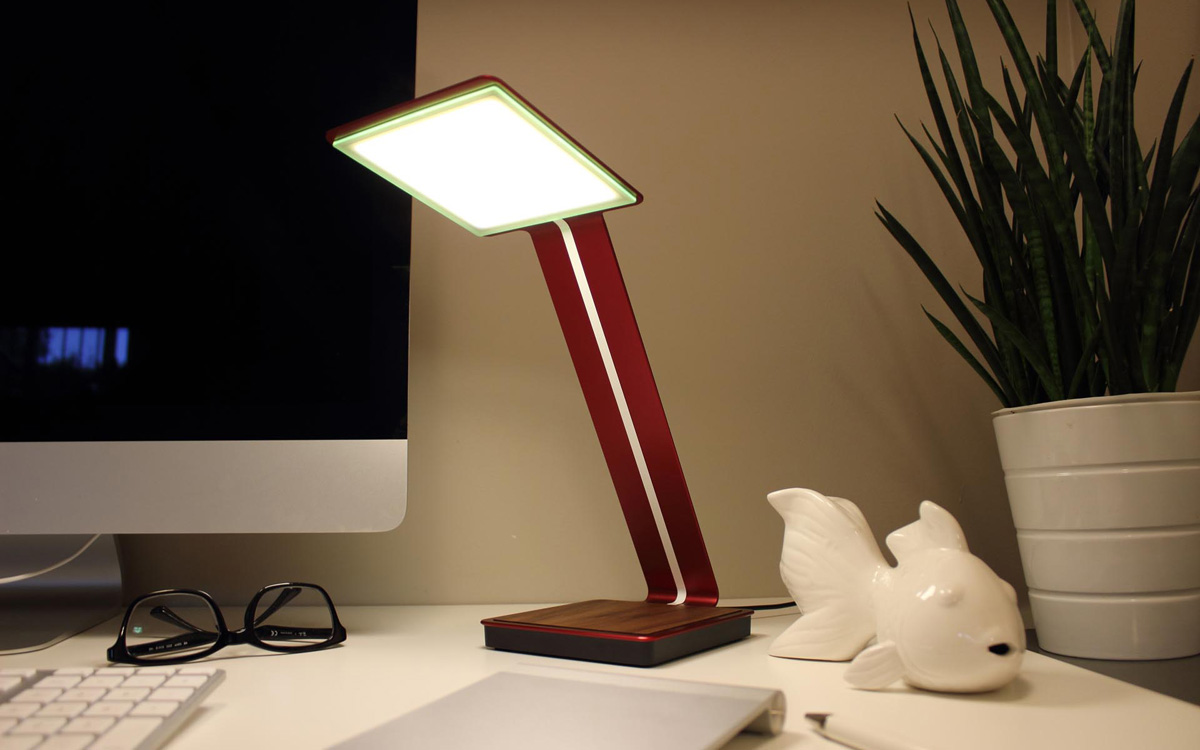 Do you take your desk lighting seriously? Really seriously? You'll want to look at Aerelight's just-shipped A1 desk lamp, then. The eye-catching design uses an OLED panel to illuminate your room, which both makes it wafer-thin and produces a nat...
Do you take your desk lighting seriously? Really seriously? You'll want to look at Aerelight's just-shipped A1 desk lamp, then. The eye-catching design uses an OLED panel to illuminate your room, which both makes it wafer-thin and produces a nat... Apple Music has Beats1, and now Rdio has live radio, too. Rdio announced today that in addition to its library of 35 million songs and curated stations, it's tacking on live broadcast radio with access to "nearly 500 stations." We haven't seen a fu...
Apple Music has Beats1, and now Rdio has live radio, too. Rdio announced today that in addition to its library of 35 million songs and curated stations, it's tacking on live broadcast radio with access to "nearly 500 stations." We haven't seen a fu... There's no question that Blizzard is a cornerstone of the eSports world. StarCraft is so big in South Korea that it's virtually an institution, and Heroes of the Storm was the first game to get a live ESPN2 broadcast. It only makes sense that the...
There's no question that Blizzard is a cornerstone of the eSports world. StarCraft is so big in South Korea that it's virtually an institution, and Heroes of the Storm was the first game to get a live ESPN2 broadcast. It only makes sense that the...


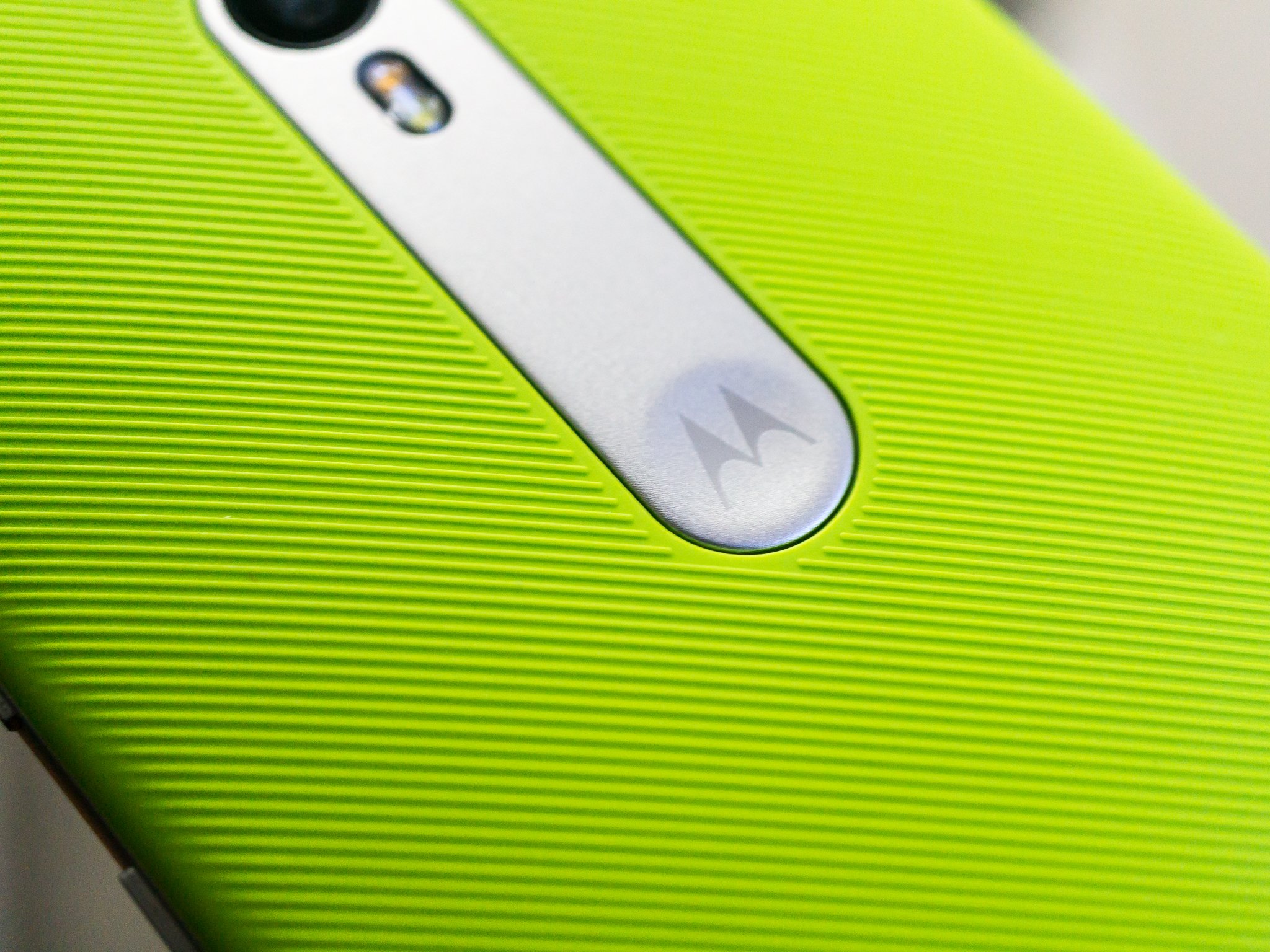

 Always looking for a reason to dust off your office's sad, unused fax machine? Here's one: The band YACHT used faxes to initially distribute its new album's artwork. No, really. It's part of a weird, multimedia promotion that defies all expectation...
Always looking for a reason to dust off your office's sad, unused fax machine? Here's one: The band YACHT used faxes to initially distribute its new album's artwork. No, really. It's part of a weird, multimedia promotion that defies all expectation... Right now, the easiest way to read breaking news on your smartphone is to download a dedicated news reader app, something like Paper or Flipboard -- but rumor has it that Facebook is working on something different. According to Business Insider, Fa...
Right now, the easiest way to read breaking news on your smartphone is to download a dedicated news reader app, something like Paper or Flipboard -- but rumor has it that Facebook is working on something different. According to Business Insider, Fa...



 Makerbase, a new site from Lifehacker founder Gina Trapani and former blogger Anil Dash that's being billed as the IMDb of web design, has just launched. Just as IMDb maintains archives of the people that help produce television shows and movies, M...
Makerbase, a new site from Lifehacker founder Gina Trapani and former blogger Anil Dash that's being billed as the IMDb of web design, has just launched. Just as IMDb maintains archives of the people that help produce television shows and movies, M... Netflix has acquired yet another movie: Mascots. Behind the full-length project, scheduled to be released in 2016, is Christopher Guest, best known for his acting and directing in comedies like A Mighty Wind, Best In Show and For Your Consideratio...
Netflix has acquired yet another movie: Mascots. Behind the full-length project, scheduled to be released in 2016, is Christopher Guest, best known for his acting and directing in comedies like A Mighty Wind, Best In Show and For Your Consideratio... If you've been wanting to play around with LastPass on your mobile device without paying the $12 annual fee for premium support, today is your day: the password manager just added mobile to its free tier. What's the catch? You only get it on mobile...
If you've been wanting to play around with LastPass on your mobile device without paying the $12 annual fee for premium support, today is your day: the password manager just added mobile to its free tier. What's the catch? You only get it on mobile... There is no single definition of an "indie" video game. "Indie" doesn't mean free, cheap, mobile, 8-bit, 3D, platformer, shooter or any other thing. Thanks to the recent, rapid evolution of game-making technologies, more people than ever are able t...
There is no single definition of an "indie" video game. "Indie" doesn't mean free, cheap, mobile, 8-bit, 3D, platformer, shooter or any other thing. Thanks to the recent, rapid evolution of game-making technologies, more people than ever are able t... The phrase I saw and heard over and over again while talking to other journalists and security researchers about the Def Con hacker convention was "hostile environment." Not physically hostile; the attendees and staff were extremely nice. The hosti...
The phrase I saw and heard over and over again while talking to other journalists and security researchers about the Def Con hacker convention was "hostile environment." Not physically hostile; the attendees and staff were extremely nice. The hosti... Sure, we've seen machines that can mix drinks with the help of an app and robot bartenders that can create cocktails out of Keurig-esque pods, but they all require you to actually push the control buttons and carry your own beverages. The horror! F...
Sure, we've seen machines that can mix drinks with the help of an app and robot bartenders that can create cocktails out of Keurig-esque pods, but they all require you to actually push the control buttons and carry your own beverages. The horror! F...



 If you're already annoyed with the autoplay video ads in your Facebook timeline, you might want to brace yourself. The social network is opening up that advertising tech to outside apps, or more specifically, to publishers who leverage Menlo Park's...
If you're already annoyed with the autoplay video ads in your Facebook timeline, you might want to brace yourself. The social network is opening up that advertising tech to outside apps, or more specifically, to publishers who leverage Menlo Park's... It doesn't take long for social media to become antisocial. A tactless tweet, an inappropriate picture or even a mundane status update can create the perfect storm for online shaming. In an attempt to convert those rabid online tendencies into oppo...
It doesn't take long for social media to become antisocial. A tactless tweet, an inappropriate picture or even a mundane status update can create the perfect storm for online shaming. In an attempt to convert those rabid online tendencies into oppo... Last year, we had a lot of fun at Engadget Live Los Angeles and now we're gearing up to do it all over again. Next Friday, August 21st, we'll take over Exchange LA from 7PM to 10PM and give readers like you a chance to experience the future of tech...
Last year, we had a lot of fun at Engadget Live Los Angeles and now we're gearing up to do it all over again. Next Friday, August 21st, we'll take over Exchange LA from 7PM to 10PM and give readers like you a chance to experience the future of tech...


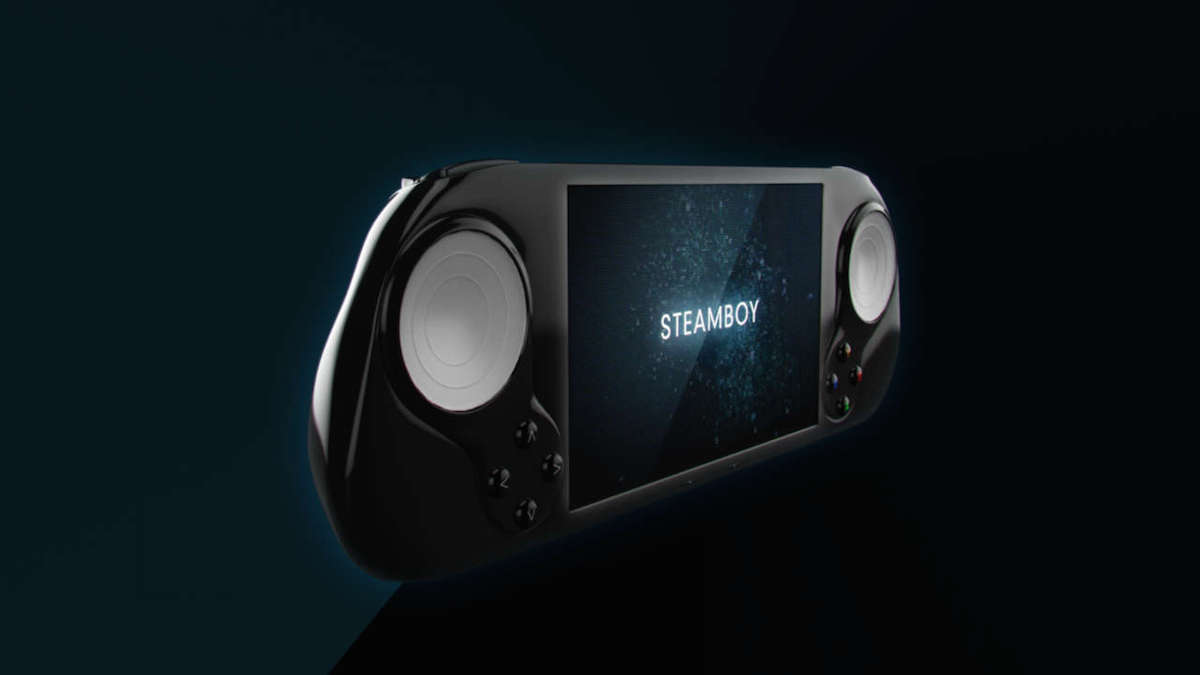 The Steam Machine invasion is happening this fall. But while these computers are said to be more powerful than traditional consoles, such as the Xbox One or PlayStation 4, none of them are exactly portable. Smach Zero's device, however, is. Formerl...
The Steam Machine invasion is happening this fall. But while these computers are said to be more powerful than traditional consoles, such as the Xbox One or PlayStation 4, none of them are exactly portable. Smach Zero's device, however, is. Formerl...

 Verizon has announced that it has successfully completed field tests of its new super-fast fiber optic technology, dubbed the next-generation passive optical network (NG-PON2). It could offer users connectivity speeds anywhere from 10Gbps to 80Gbps...
Verizon has announced that it has successfully completed field tests of its new super-fast fiber optic technology, dubbed the next-generation passive optical network (NG-PON2). It could offer users connectivity speeds anywhere from 10Gbps to 80Gbps...


 You're probably tired of hearing just how "unconventional" Google is after yesterday's surprise restructuring announcement. Sure, making Google a subsidiary of a company called Alphabet is certainly strange, especially after it's become a household...
You're probably tired of hearing just how "unconventional" Google is after yesterday's surprise restructuring announcement. Sure, making Google a subsidiary of a company called Alphabet is certainly strange, especially after it's become a household...







